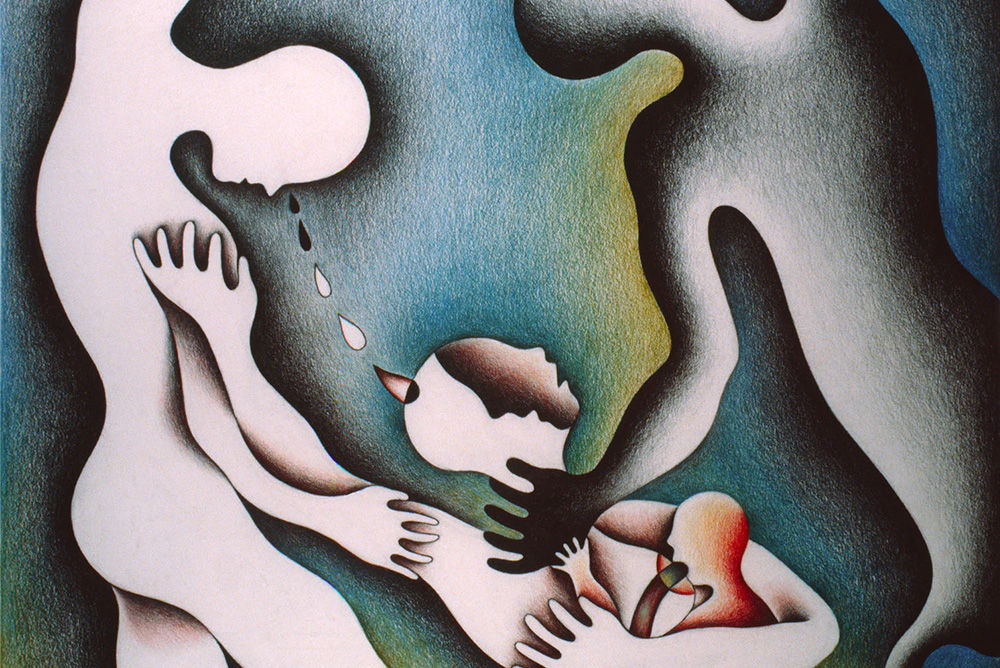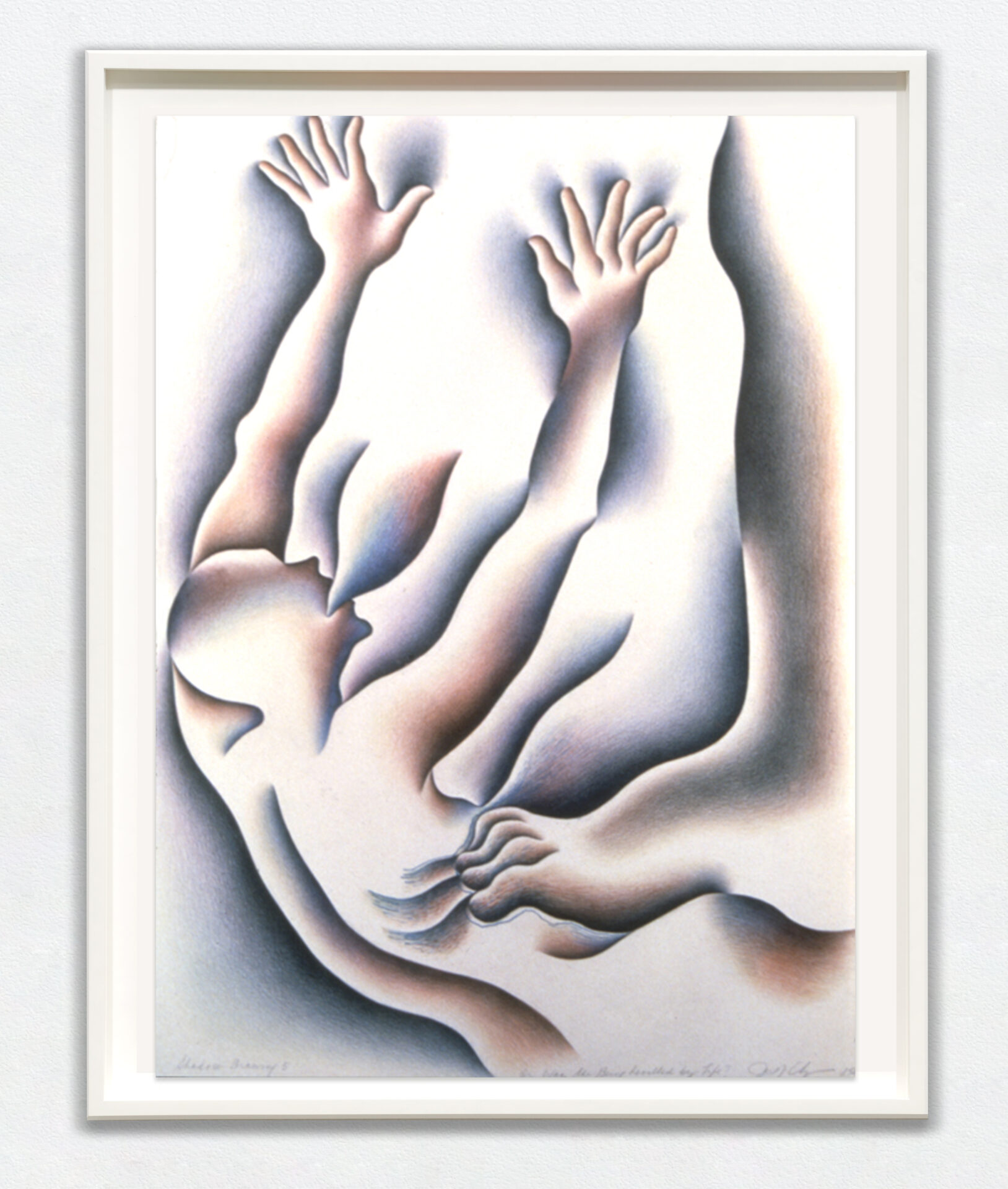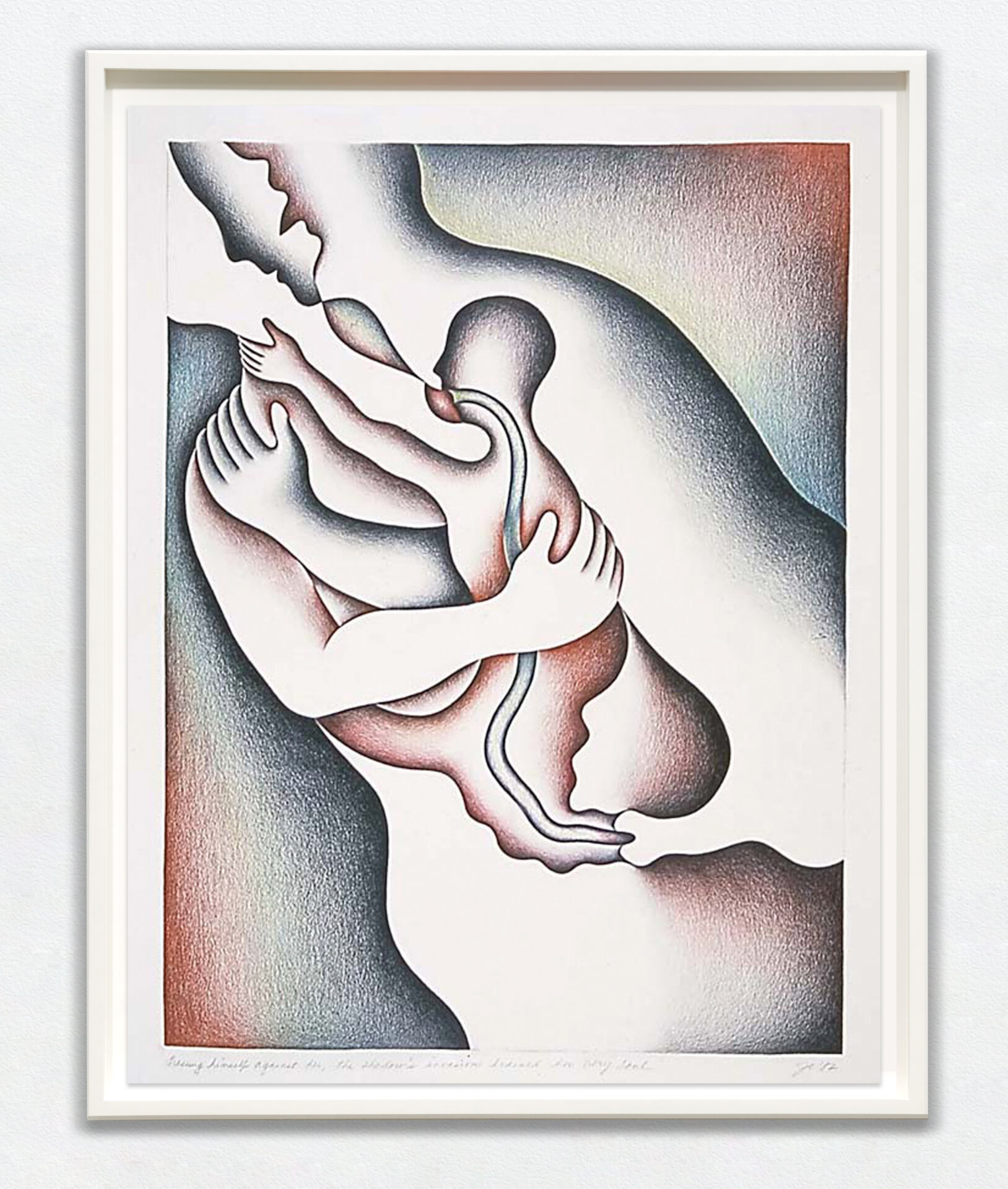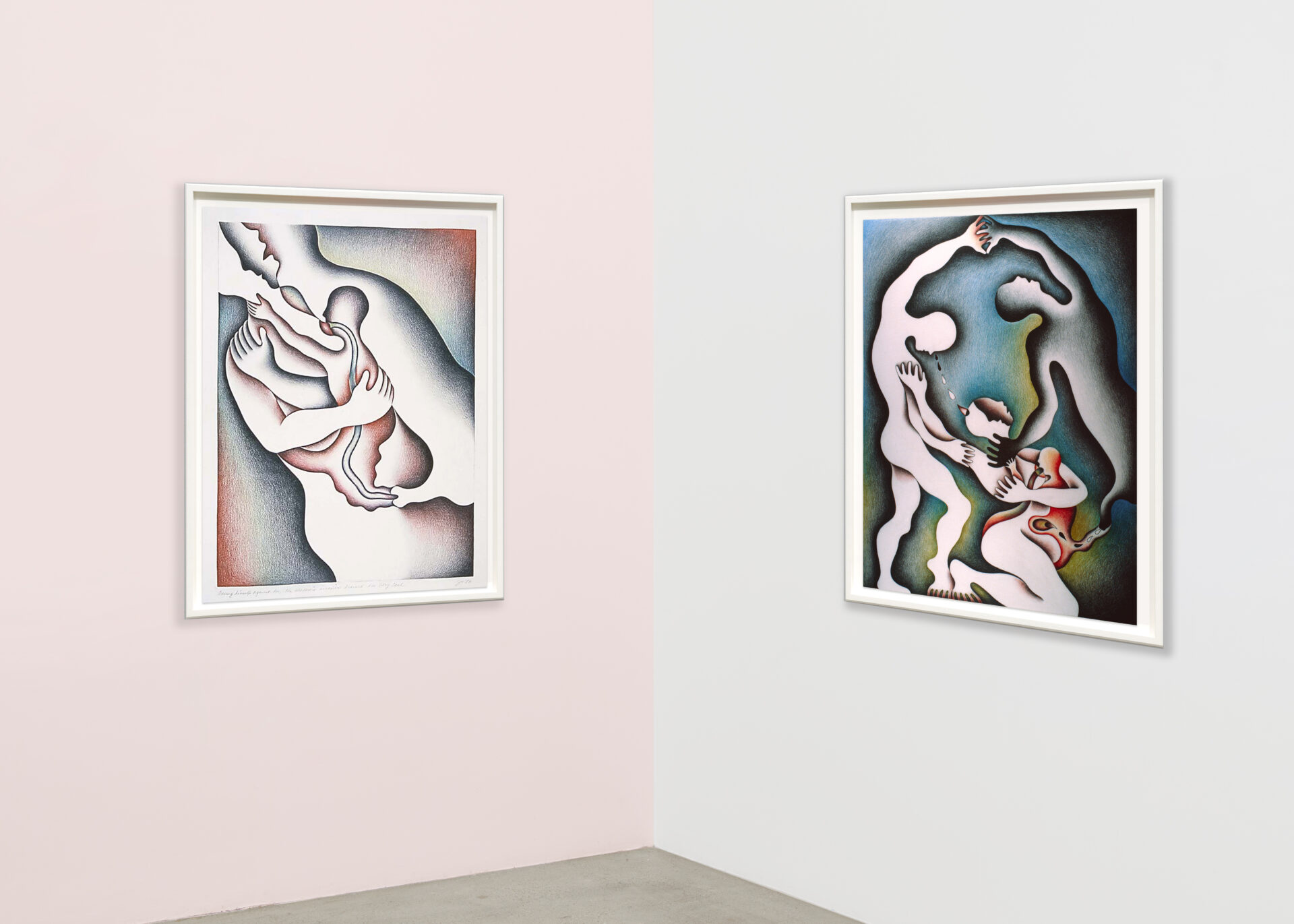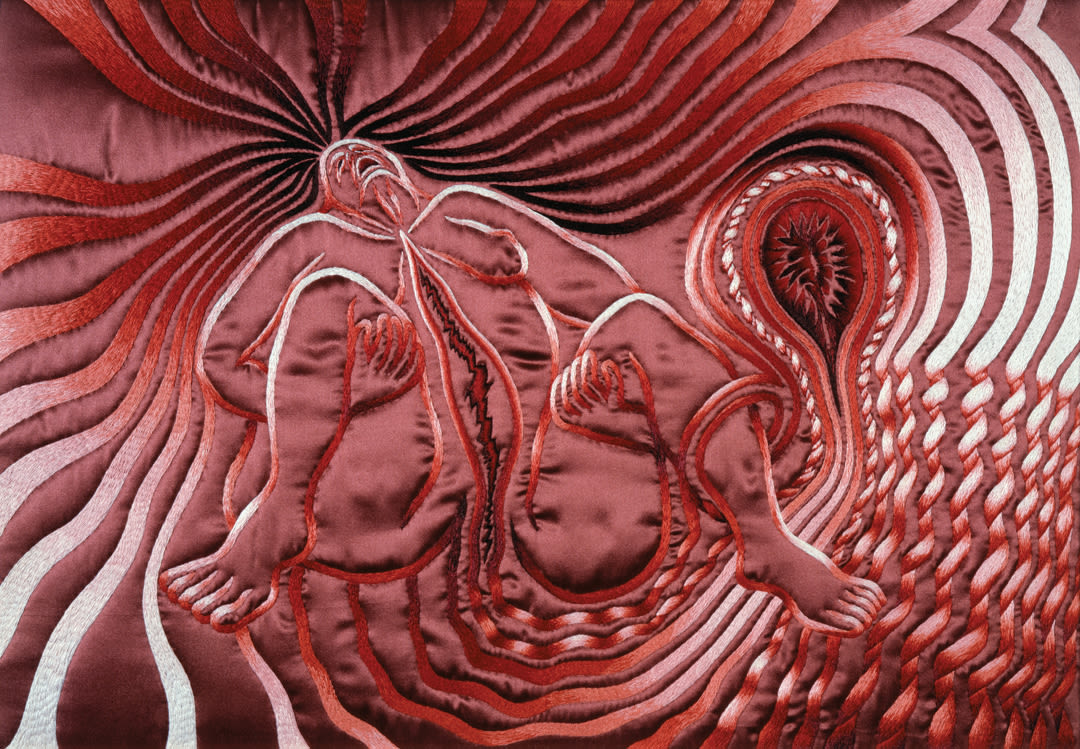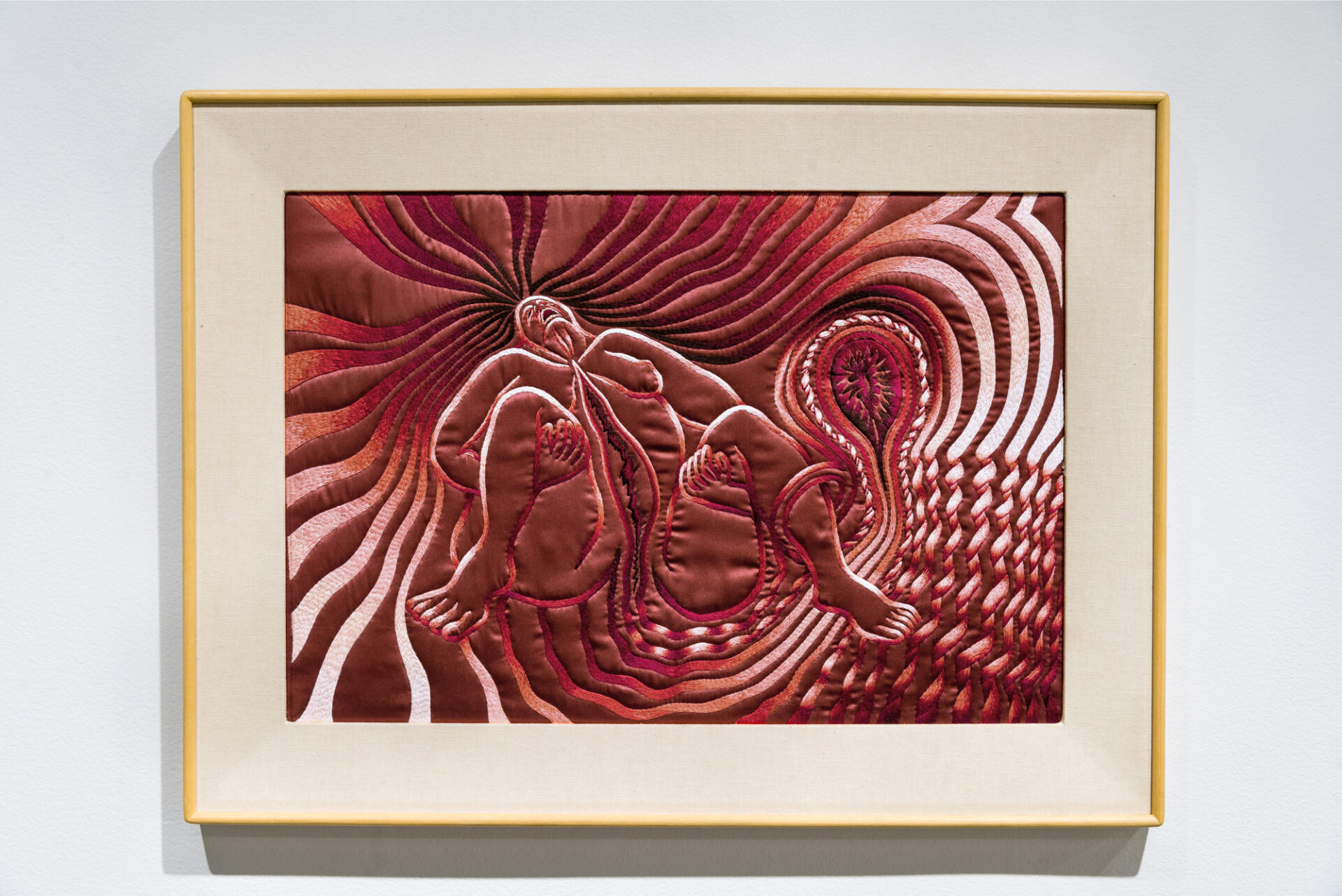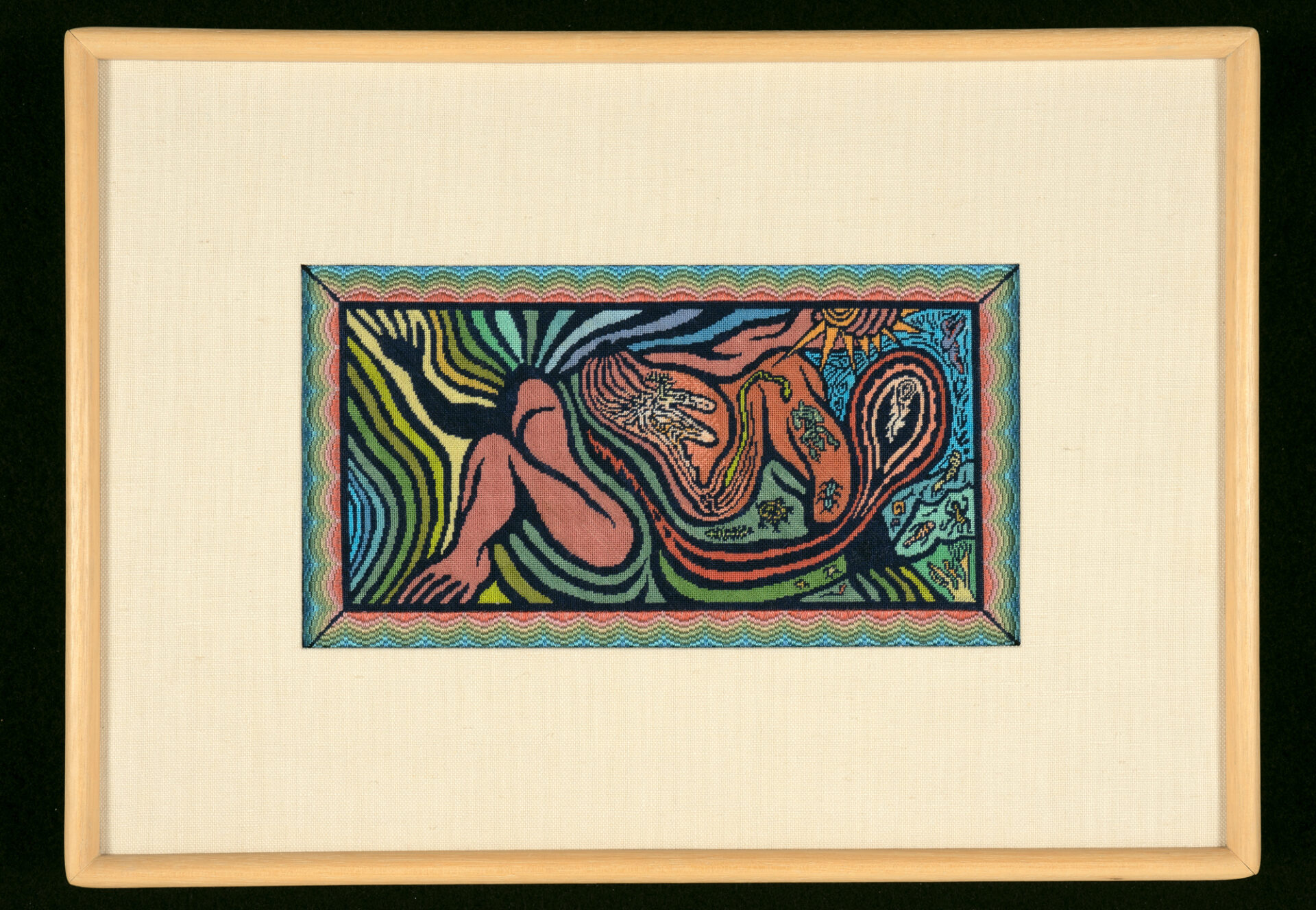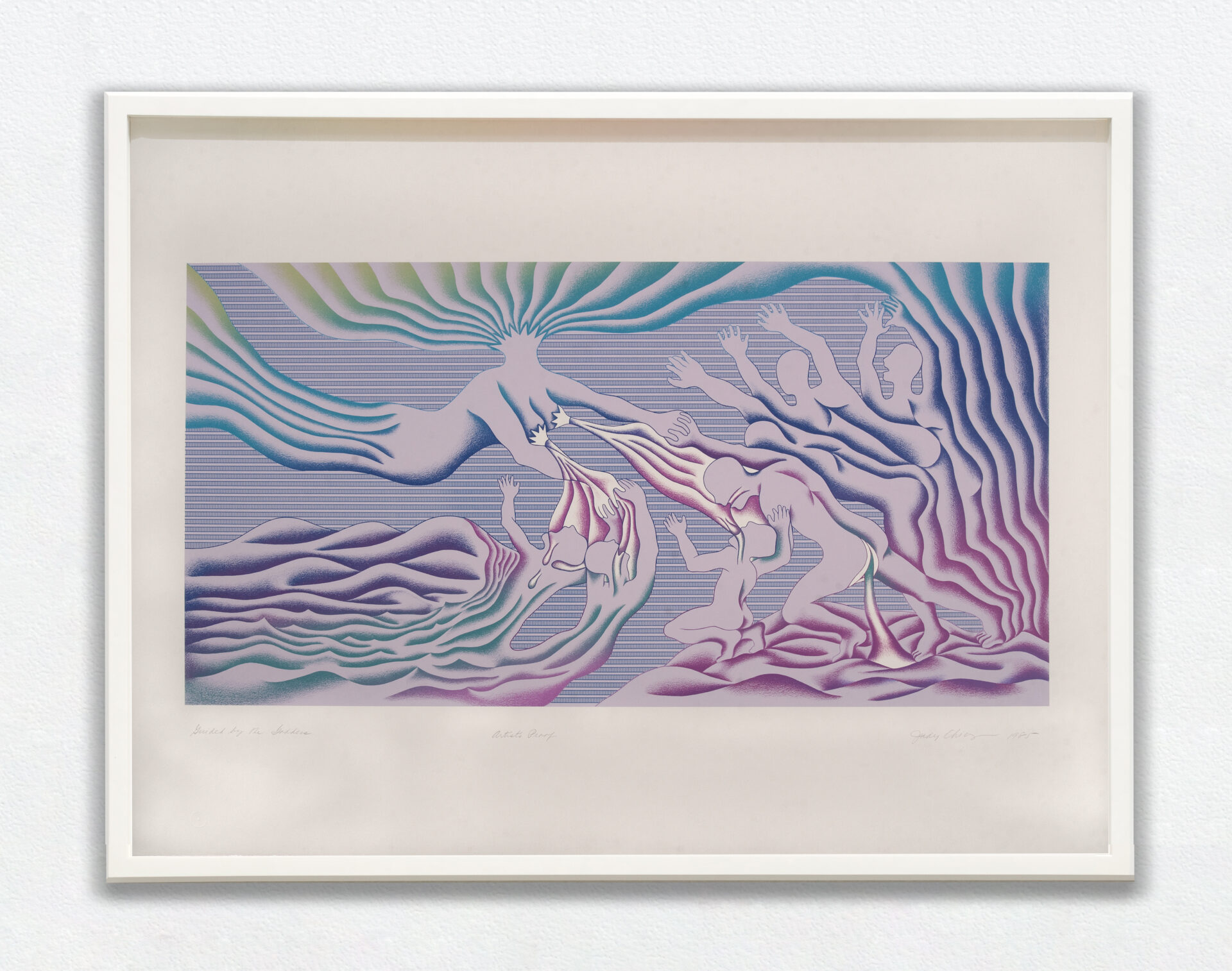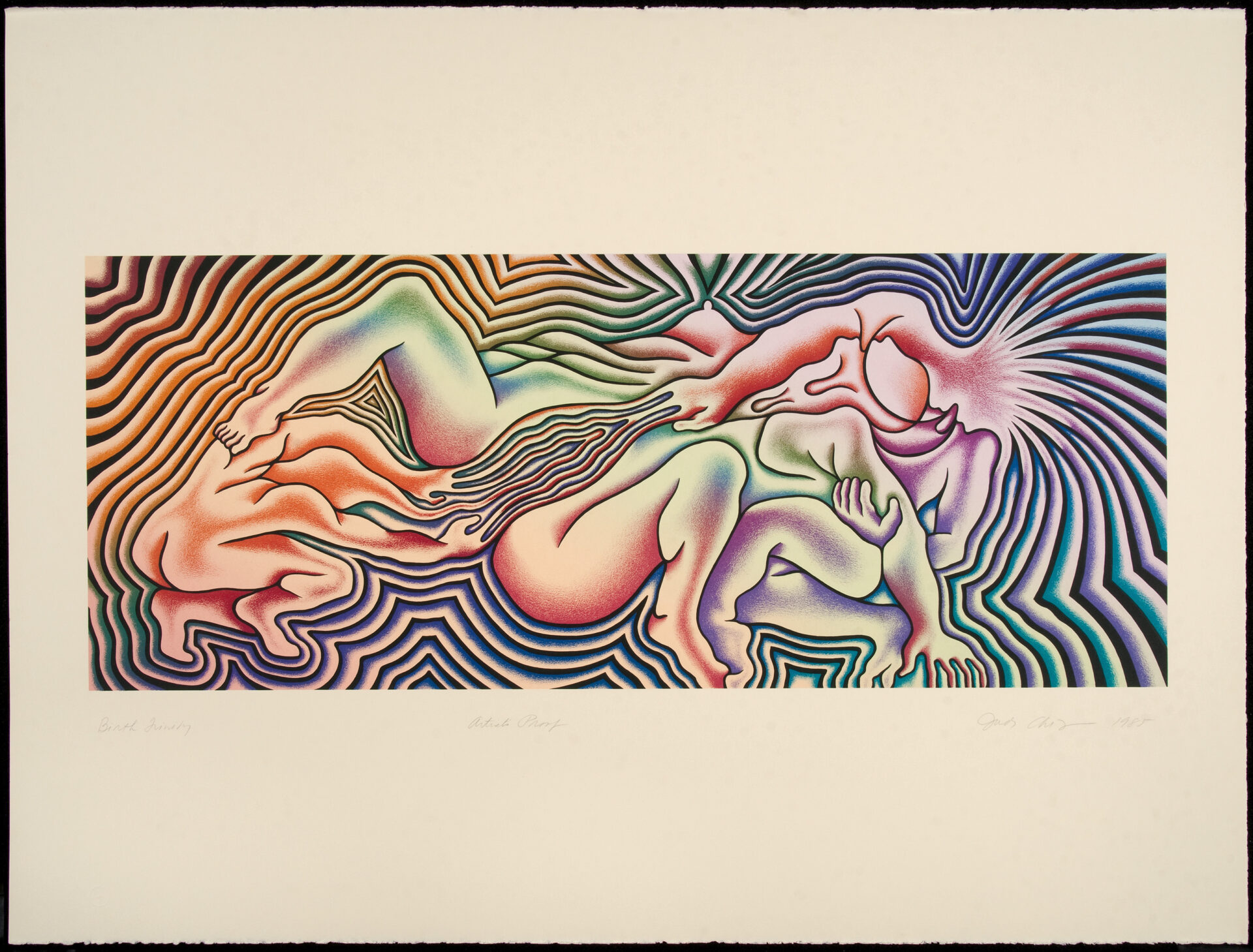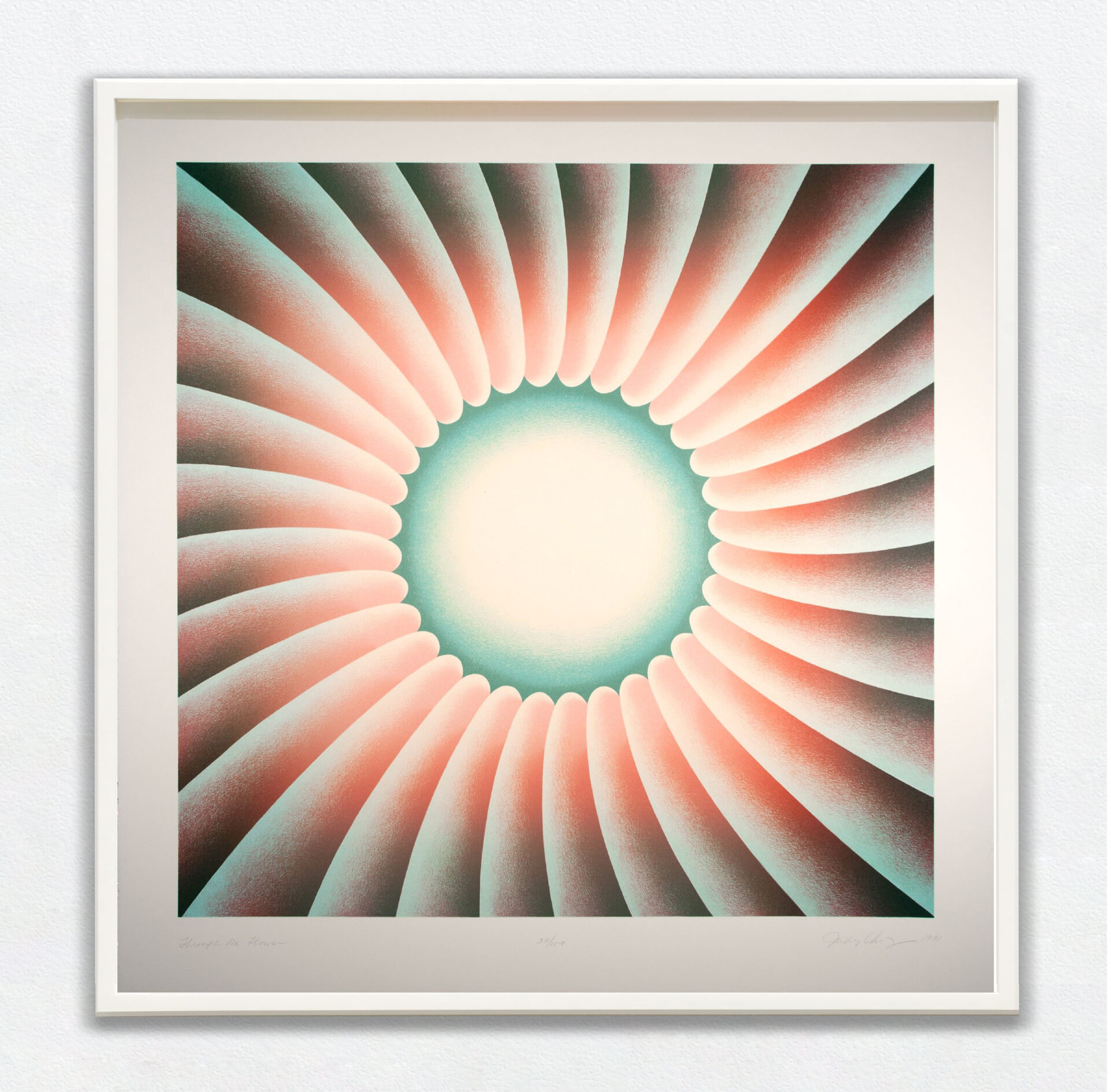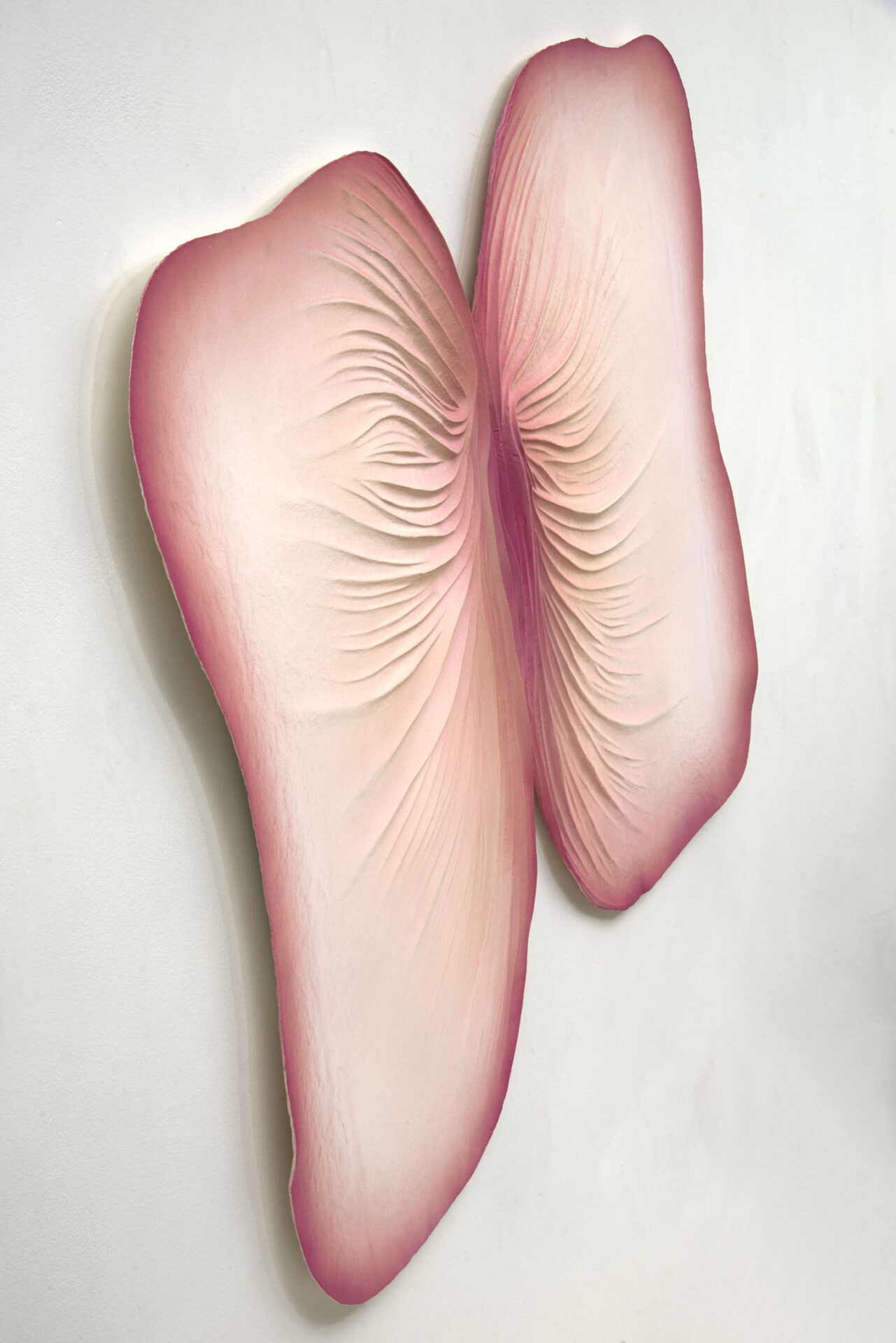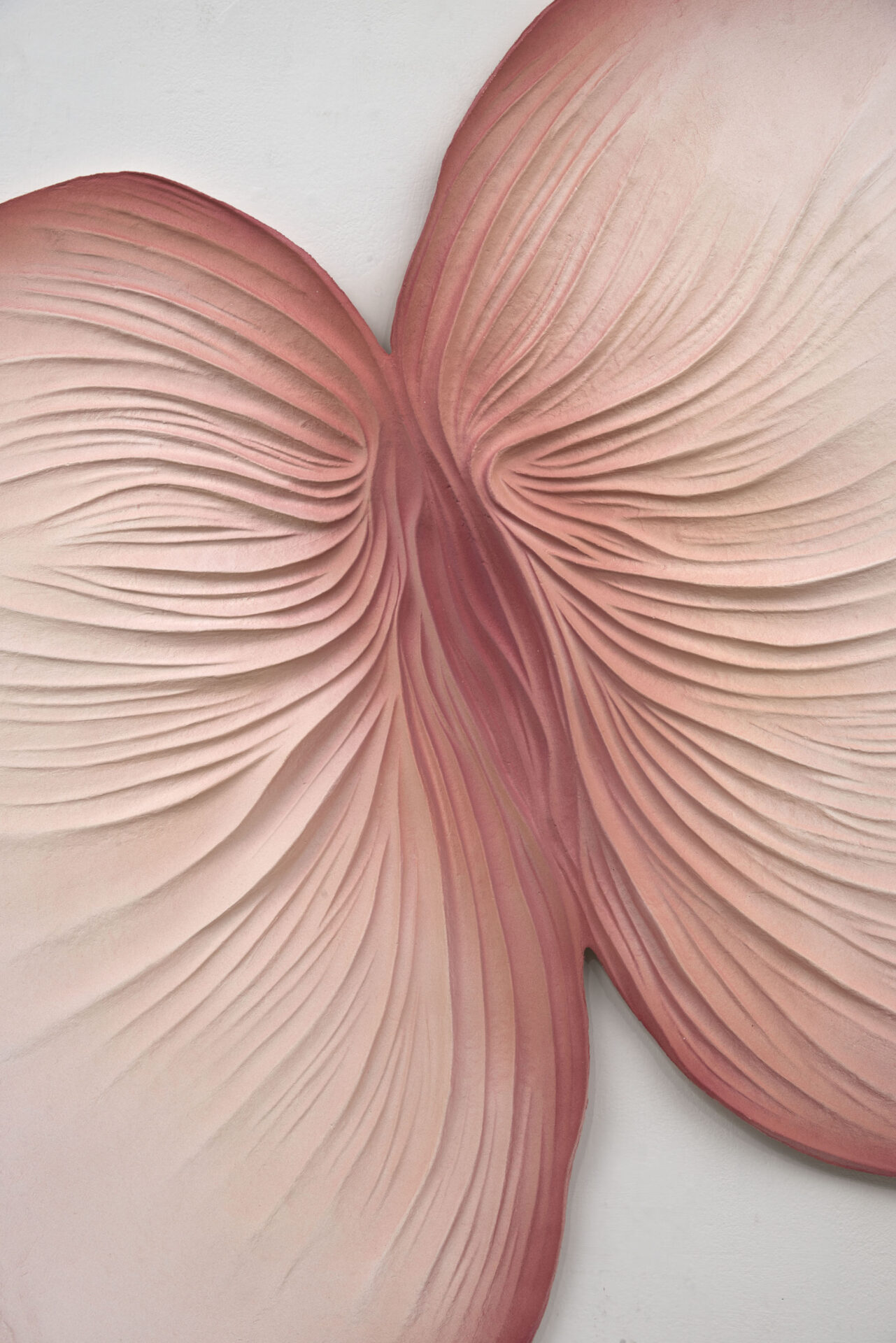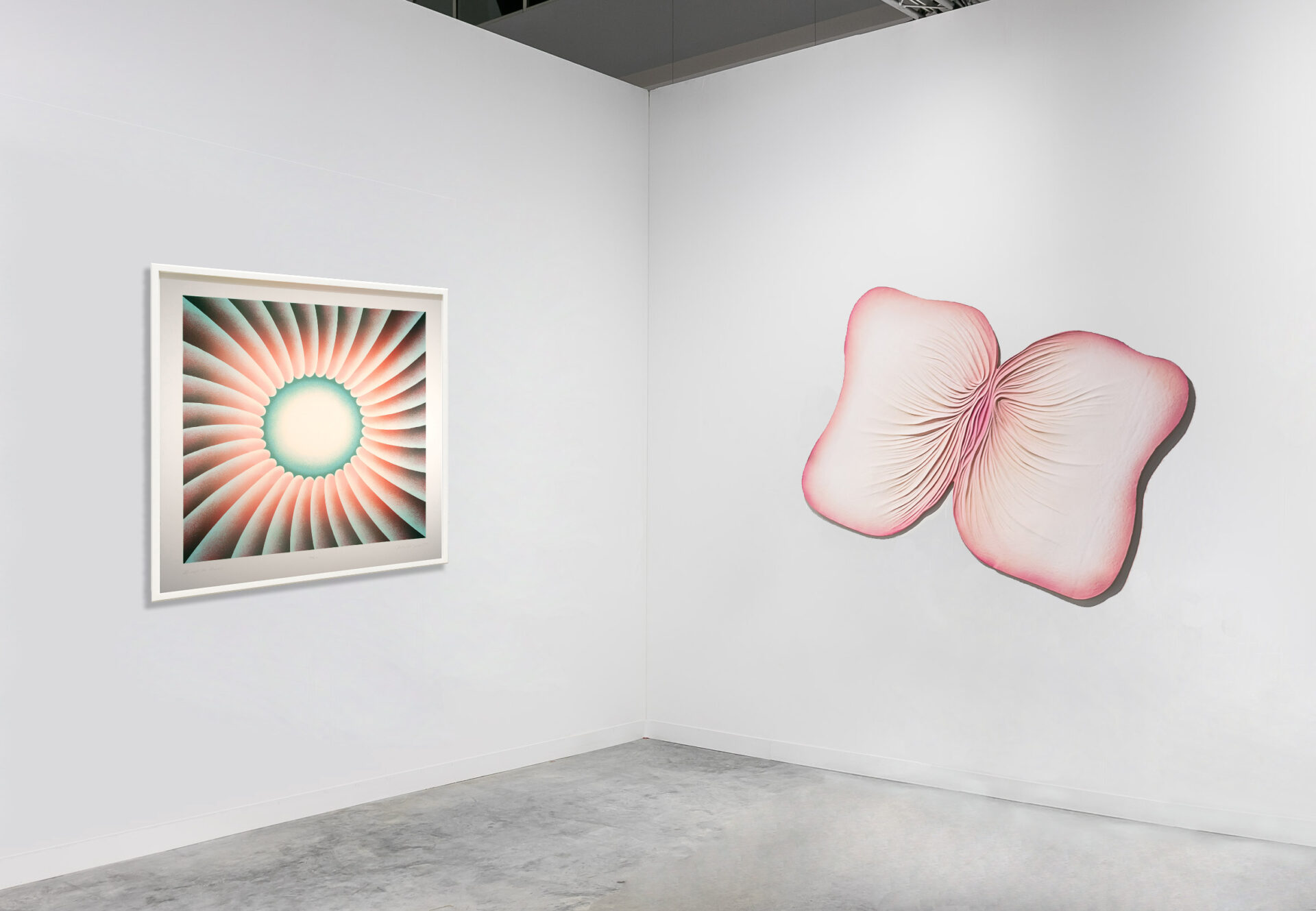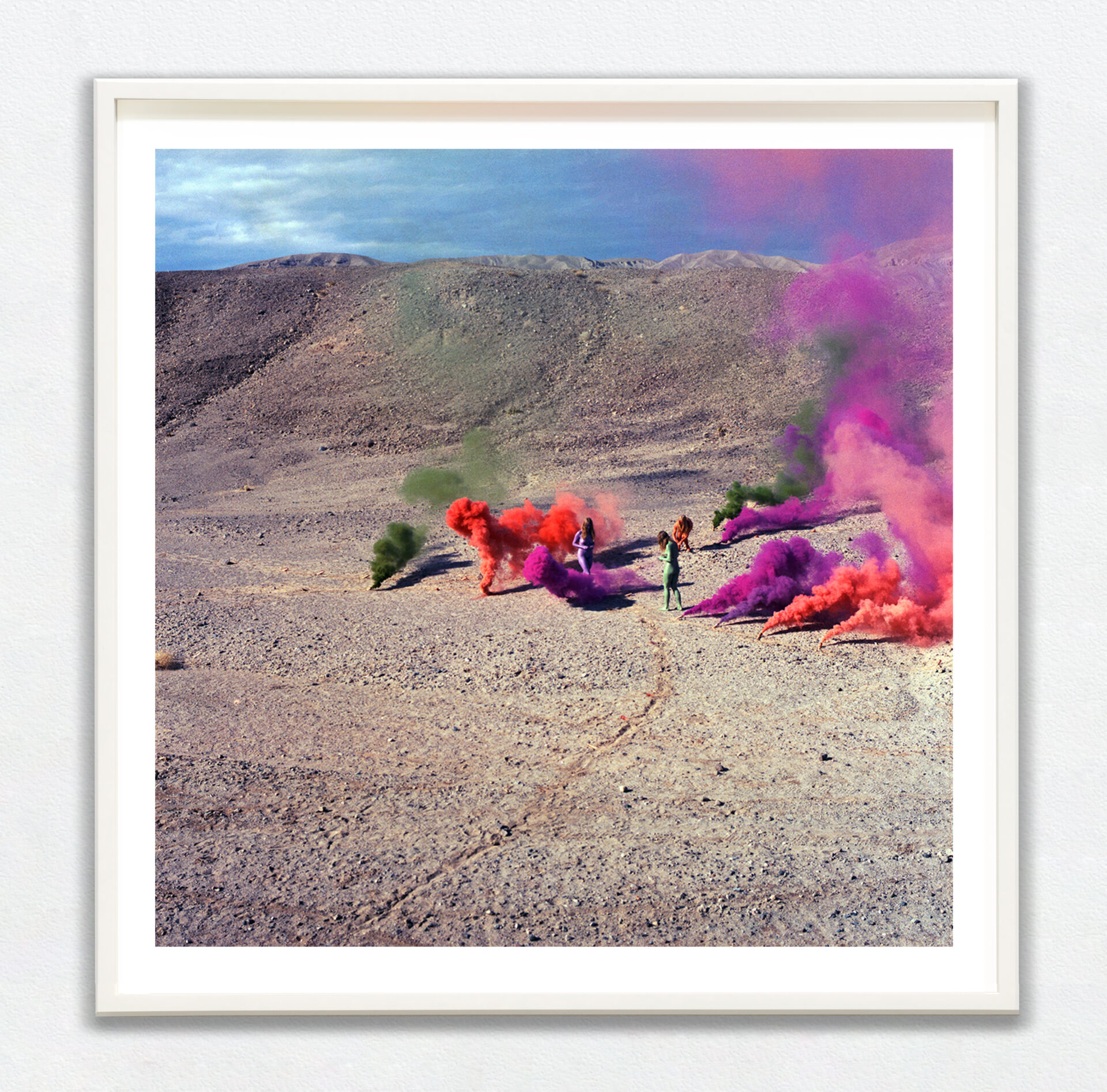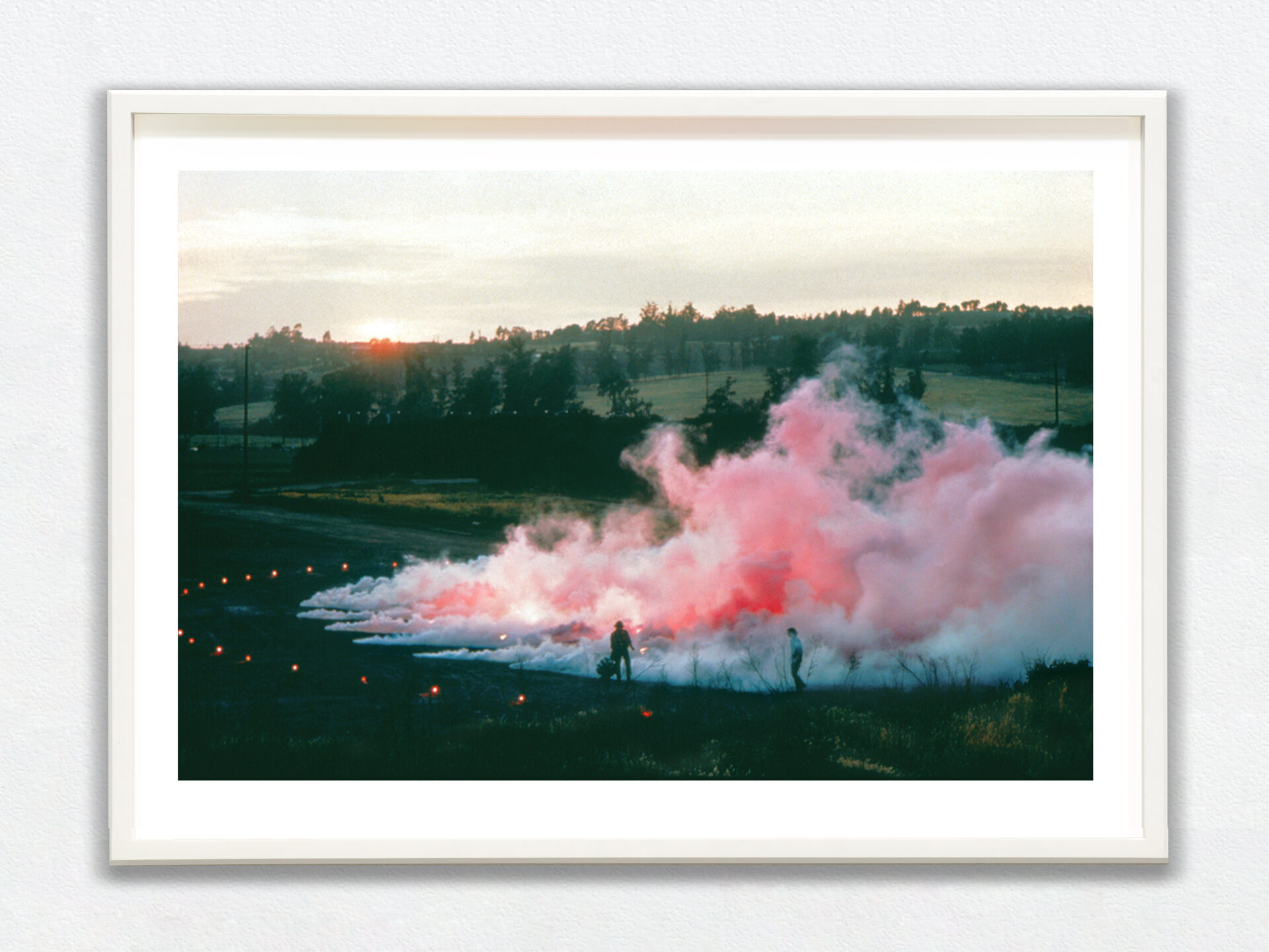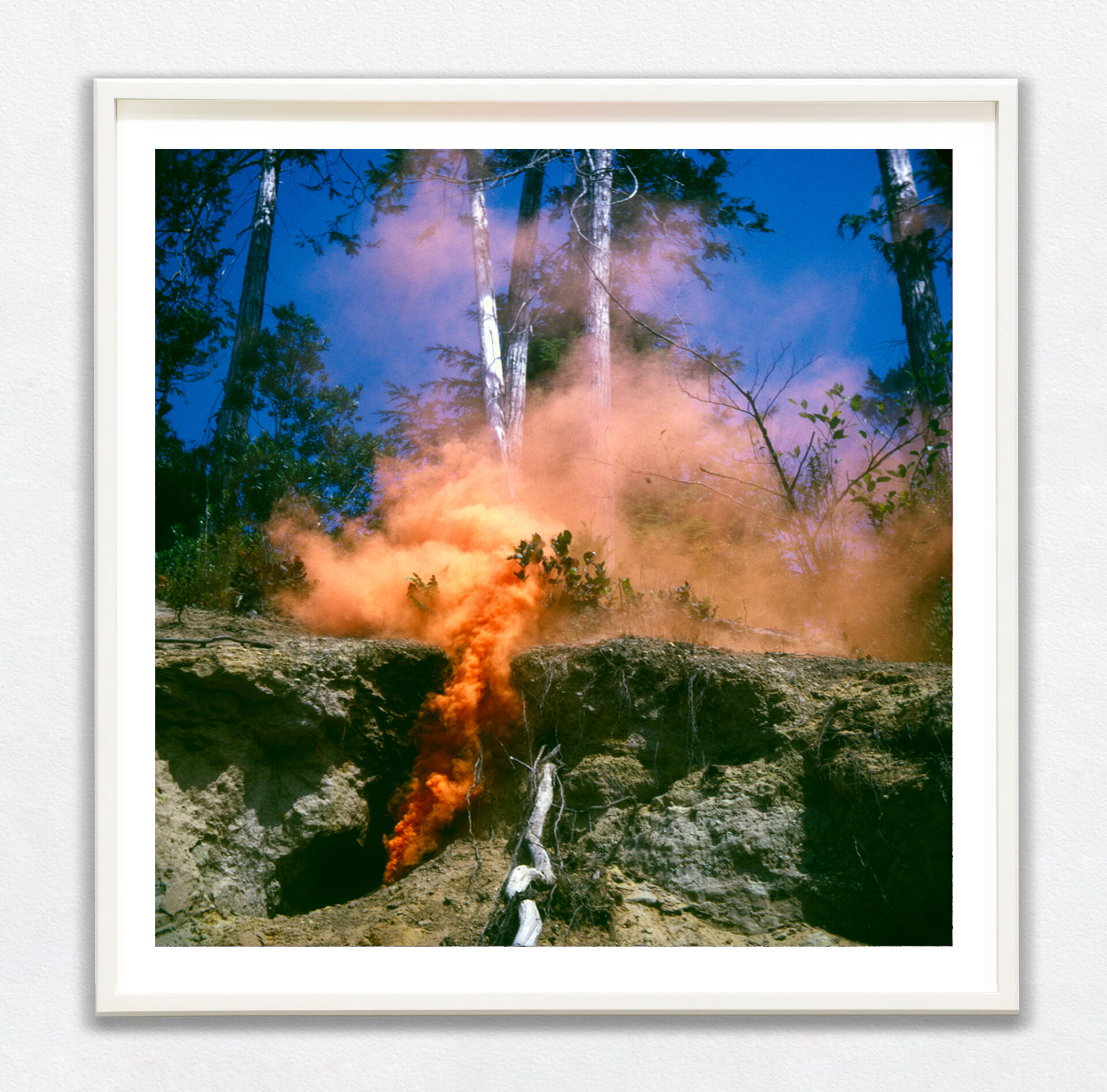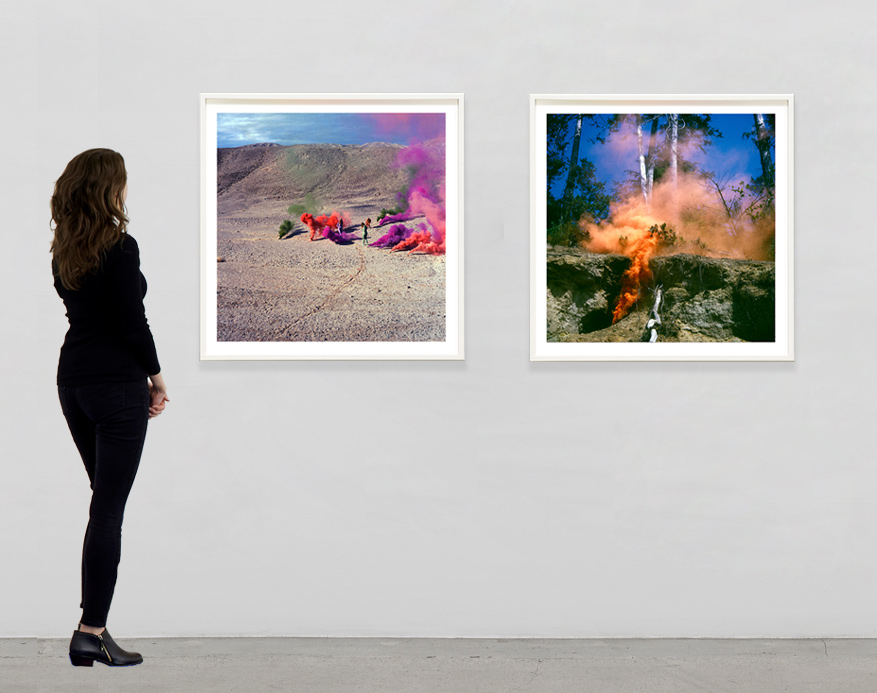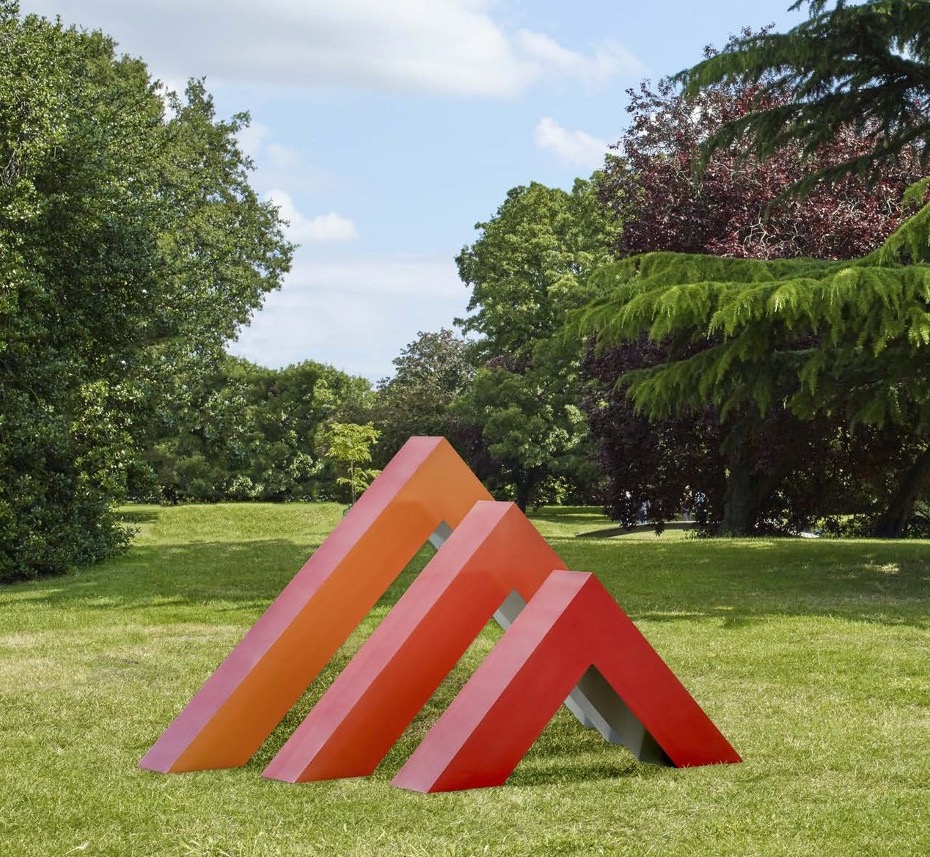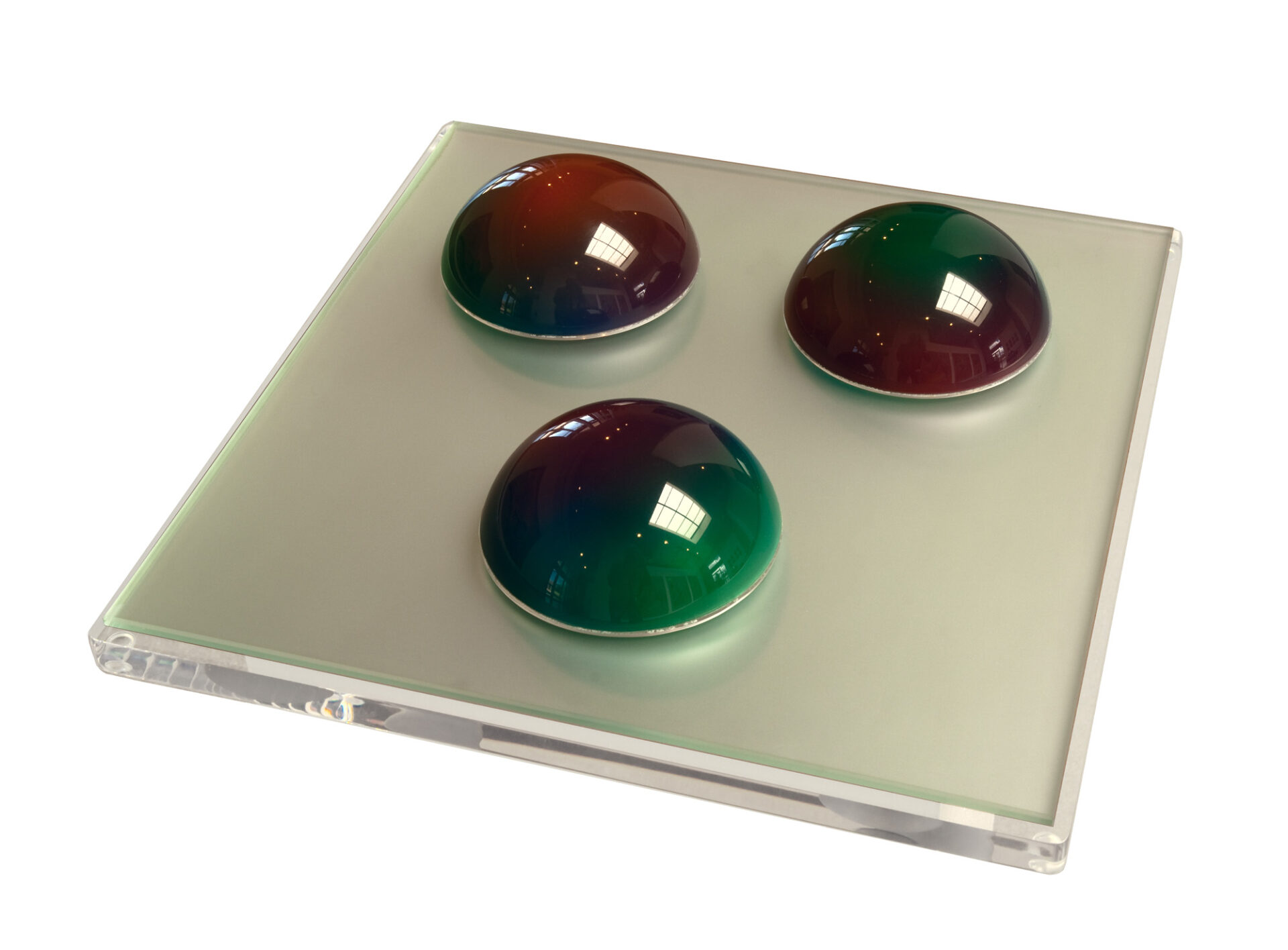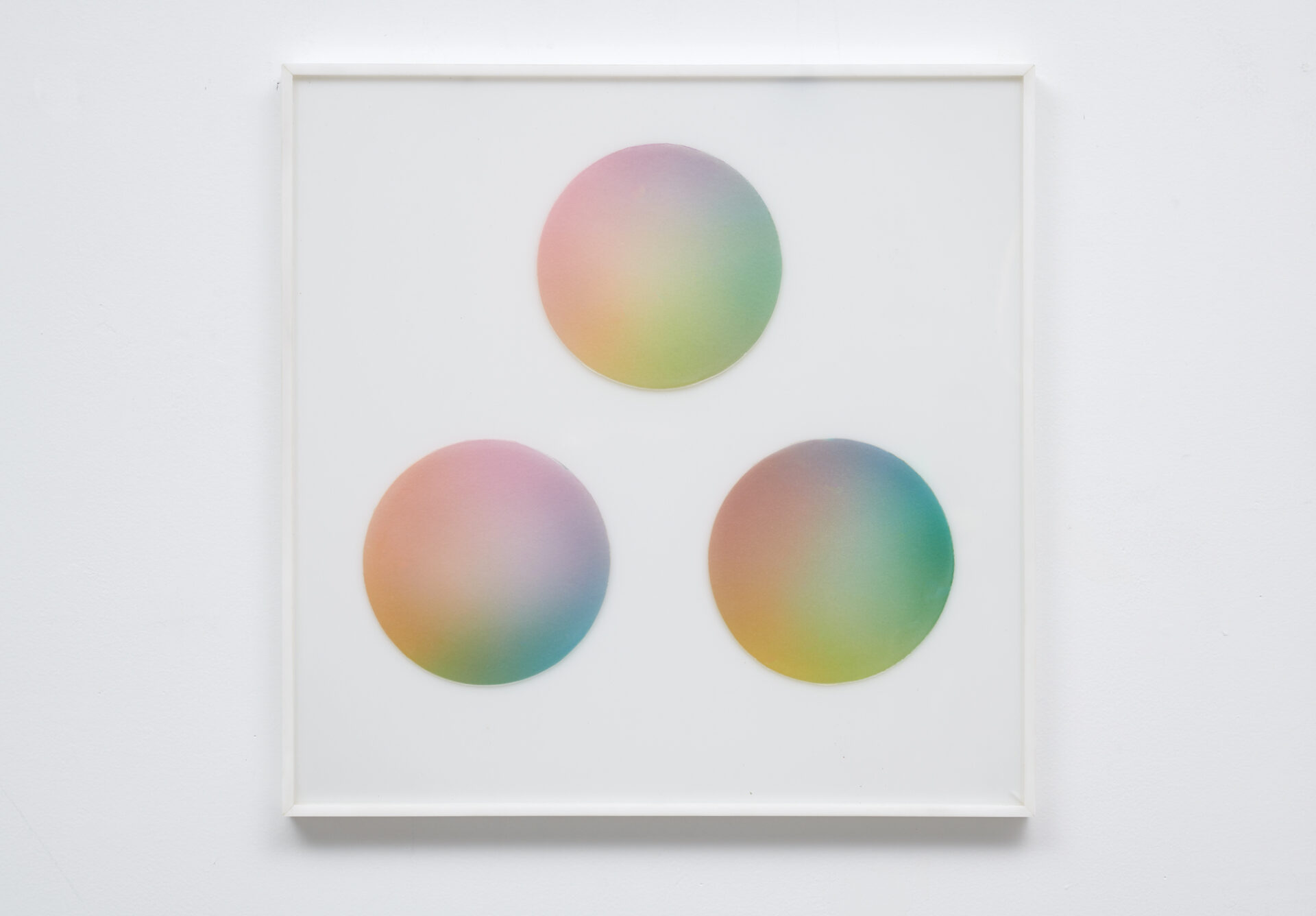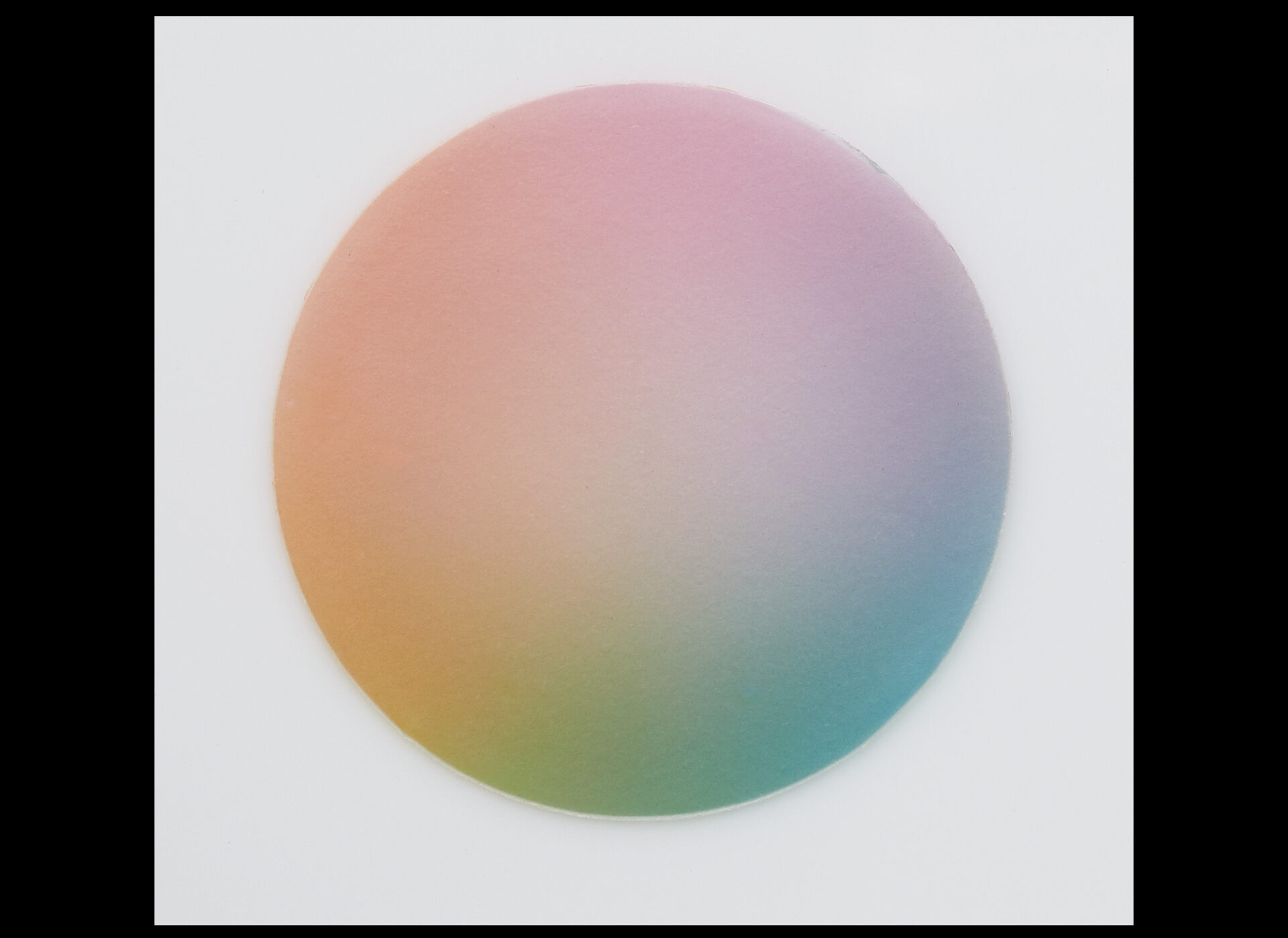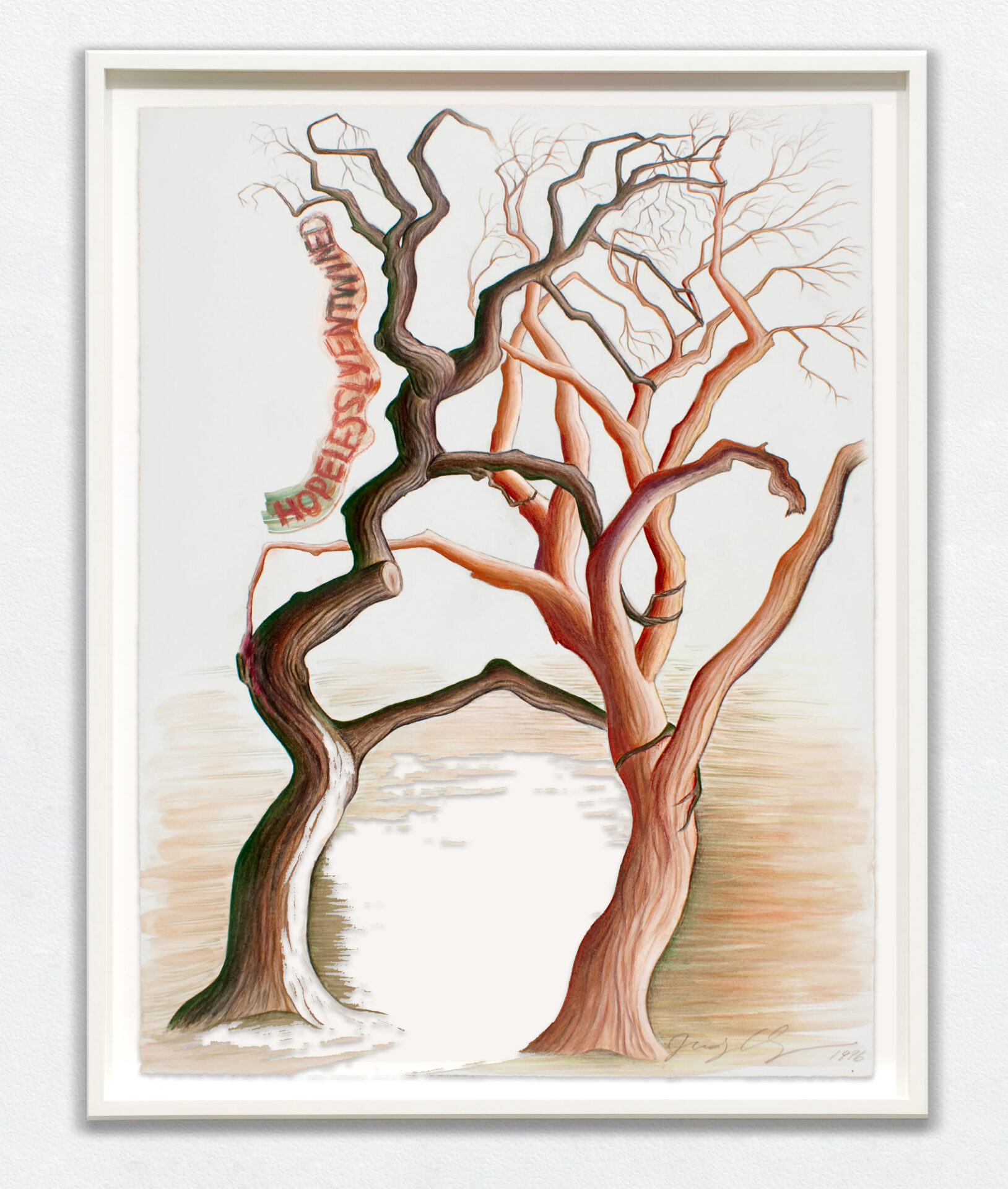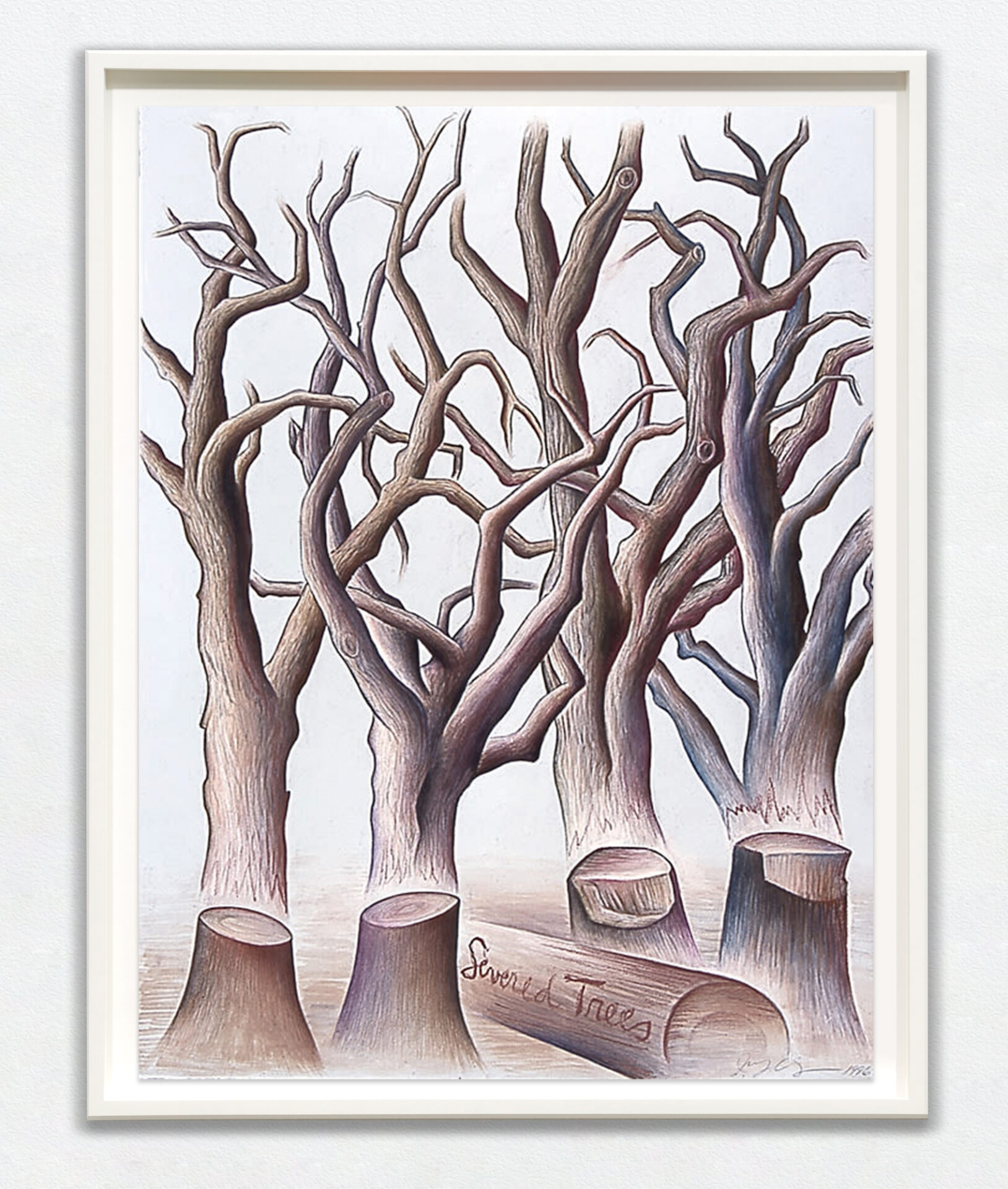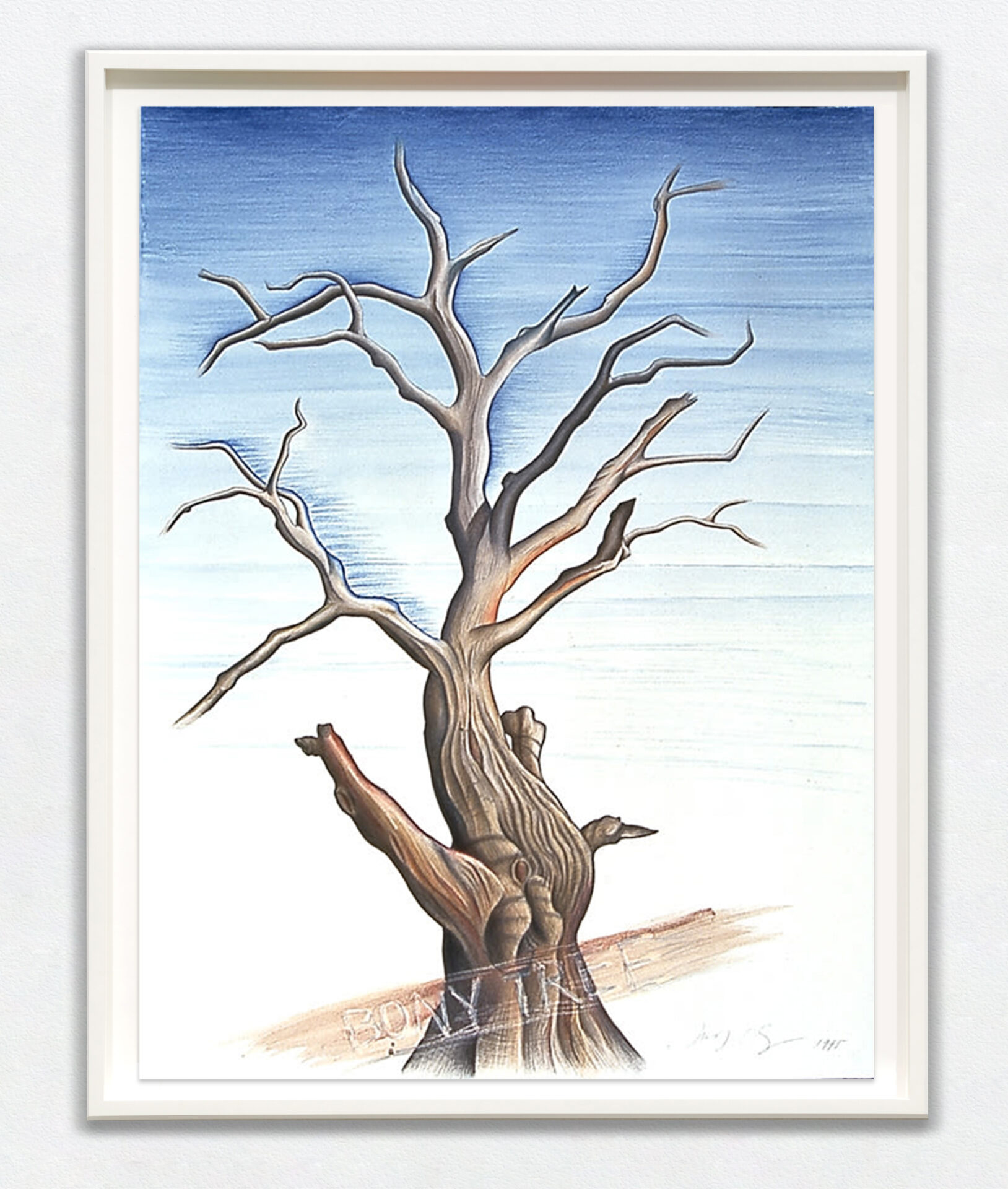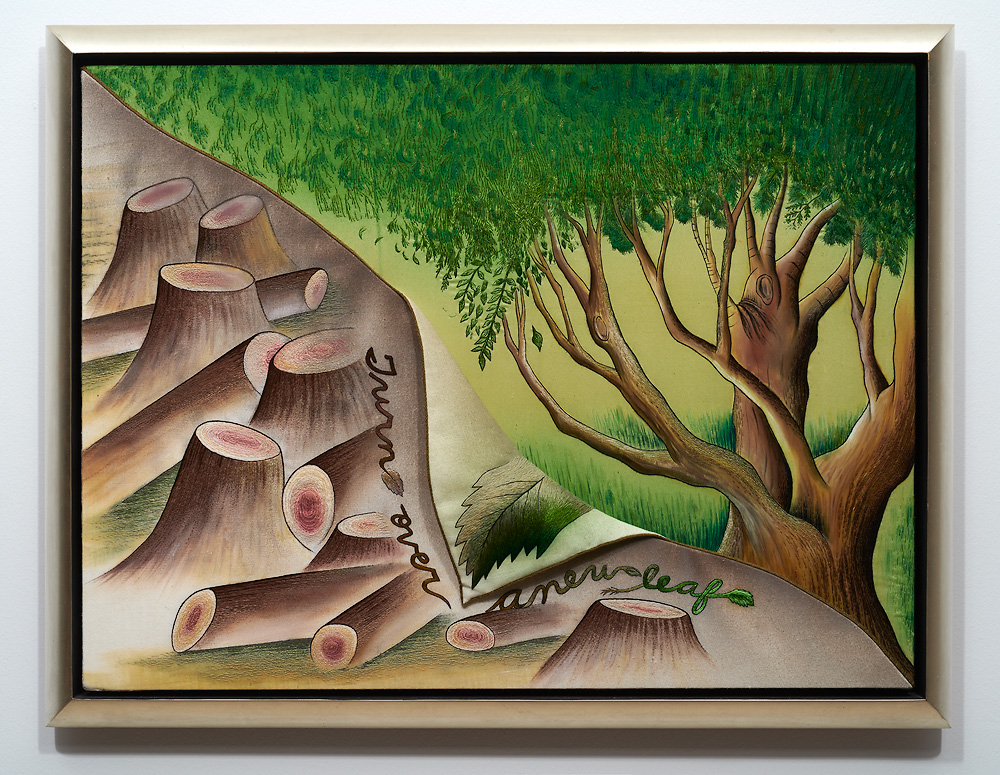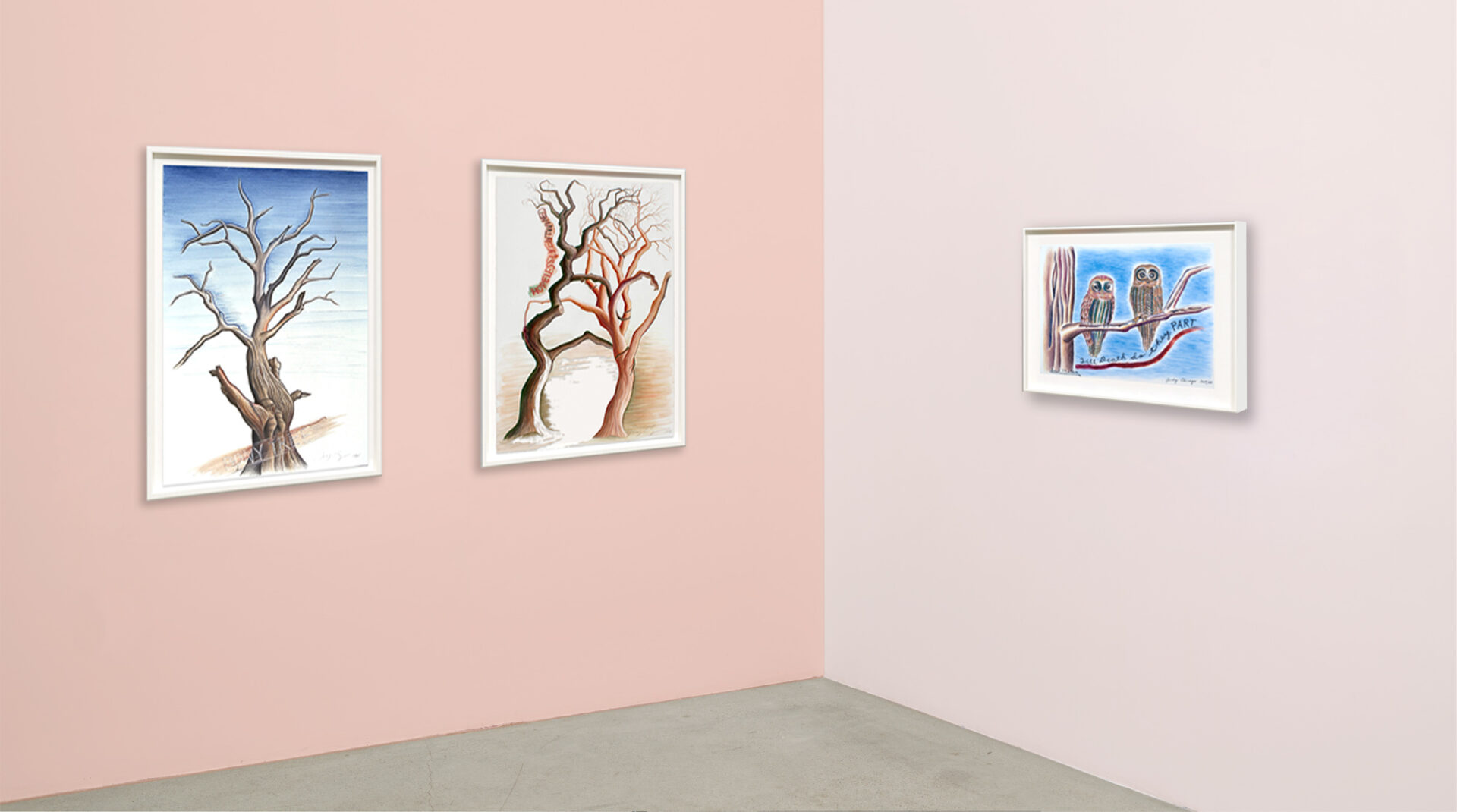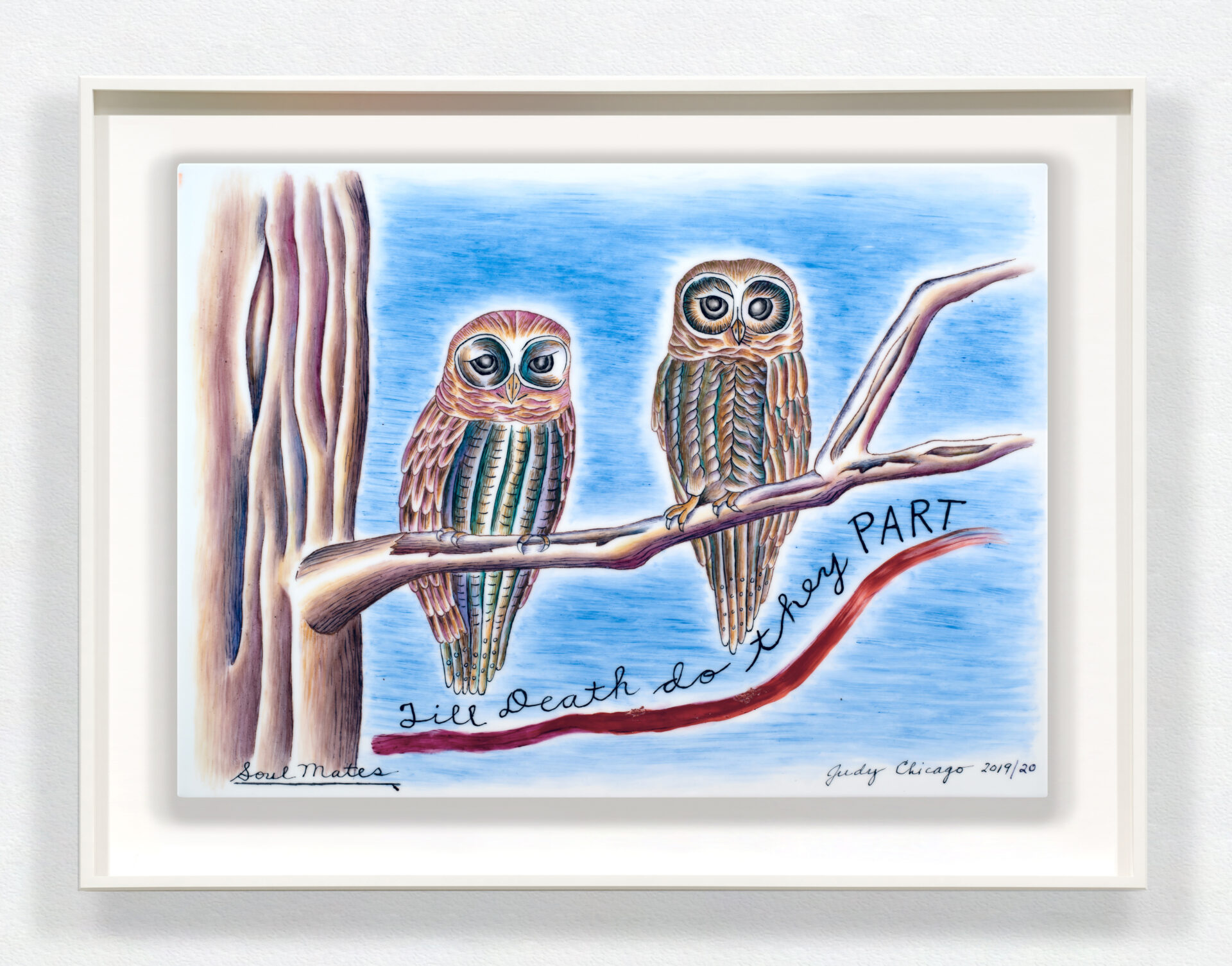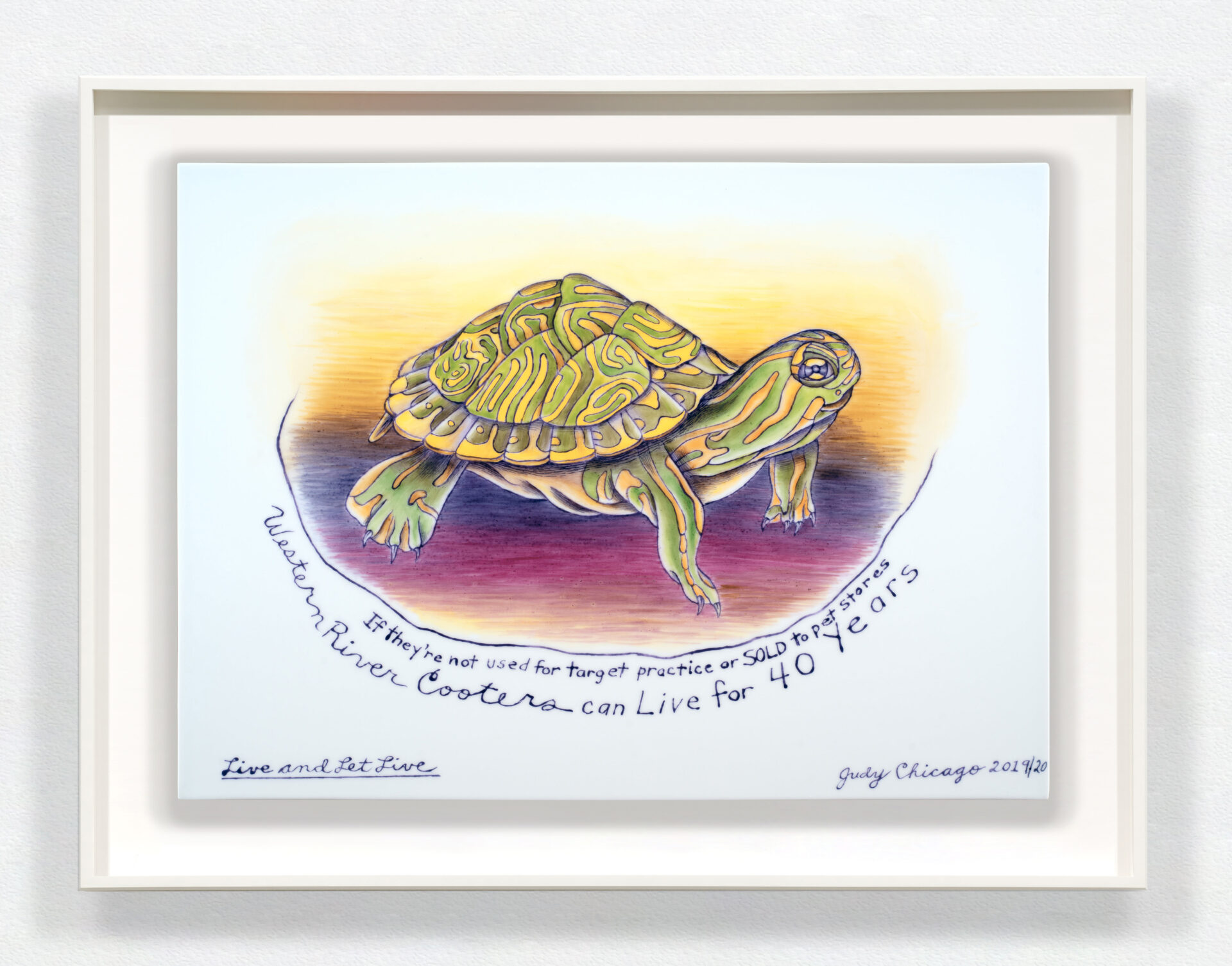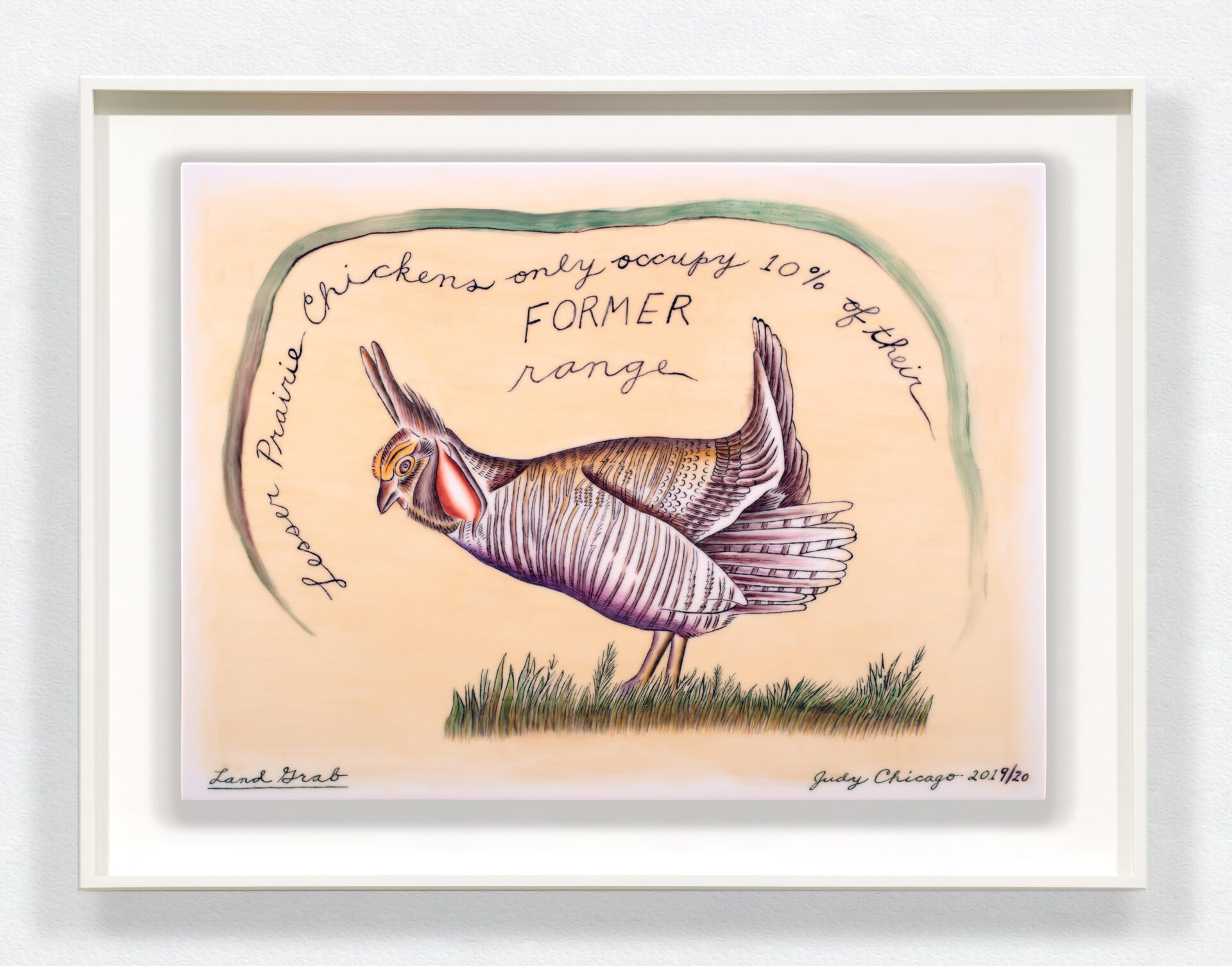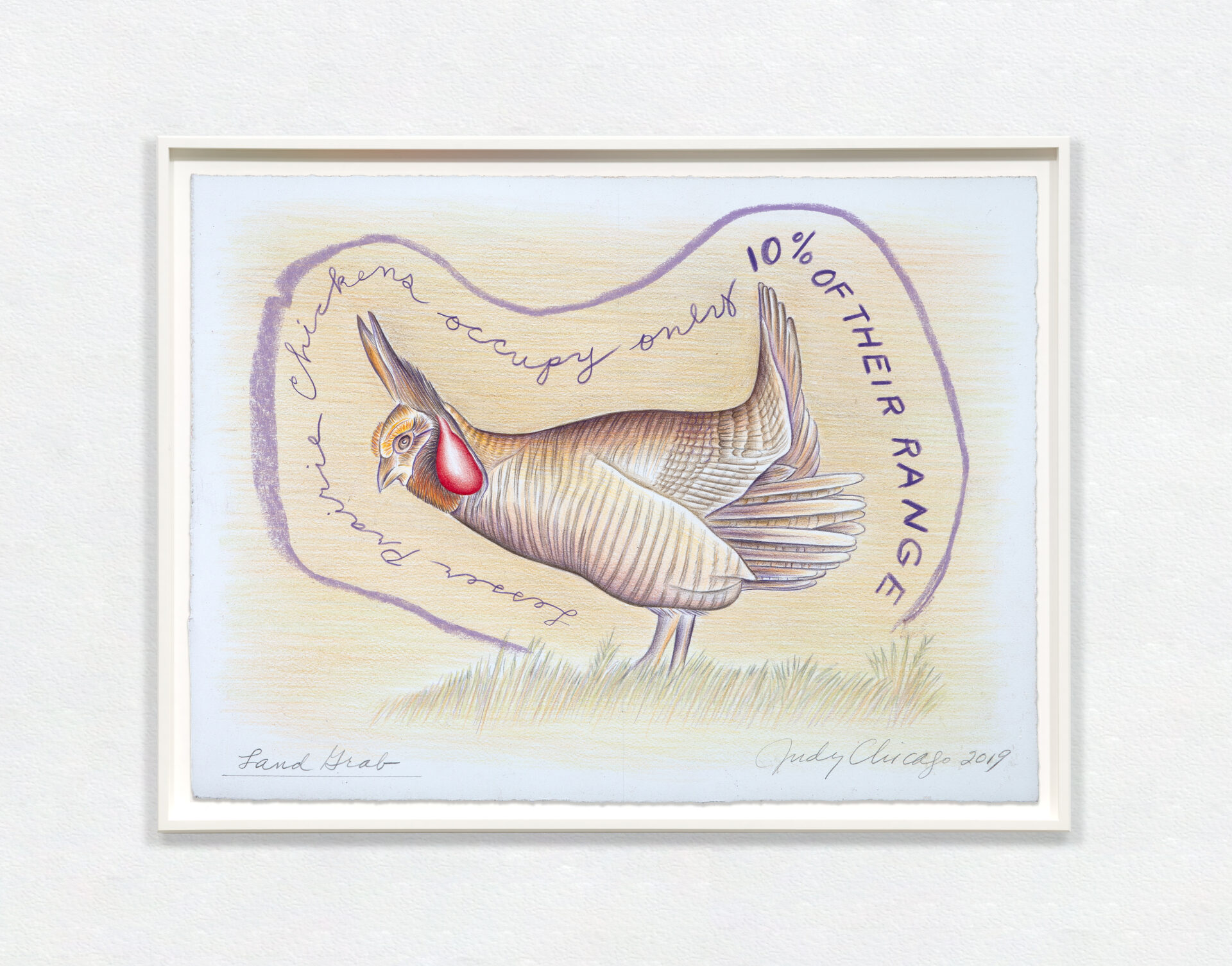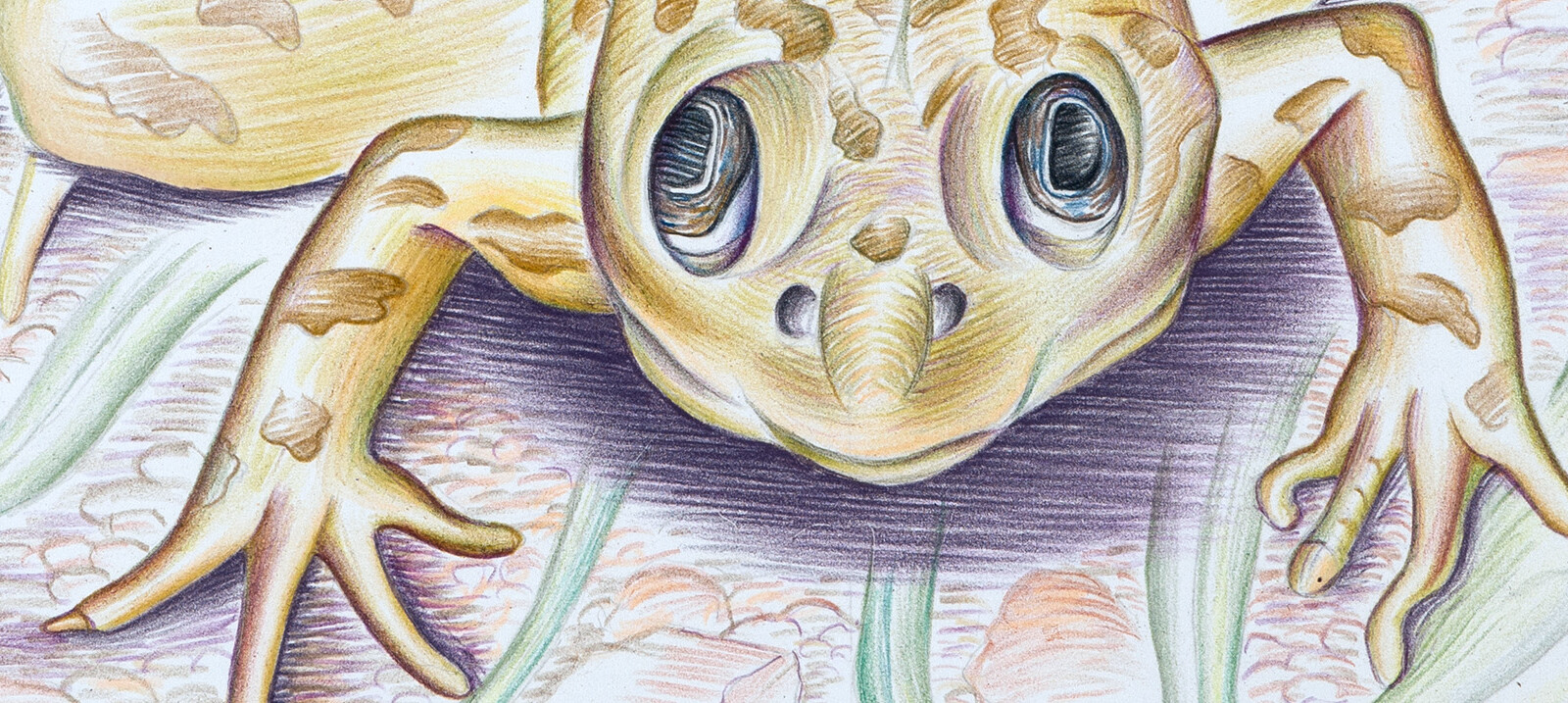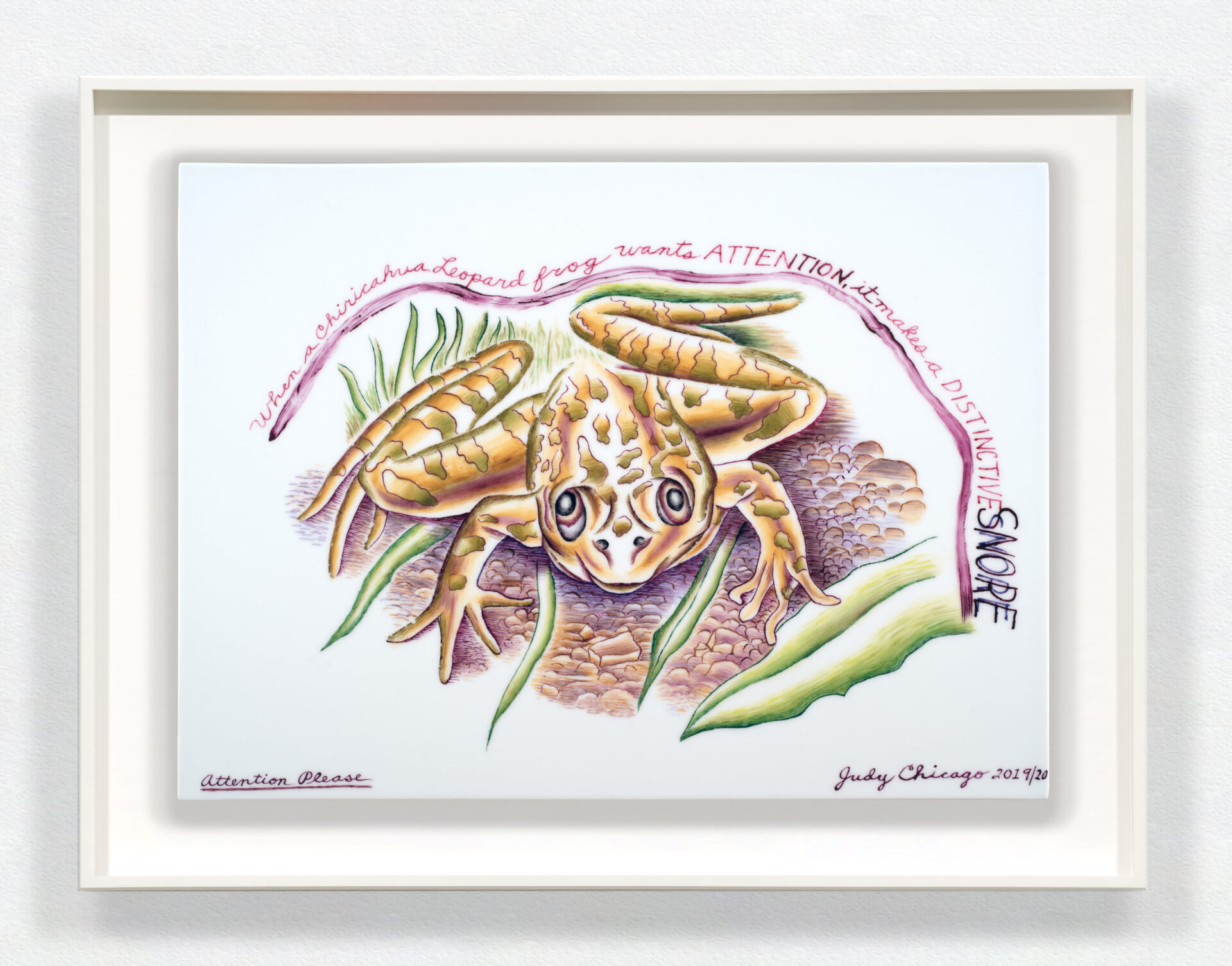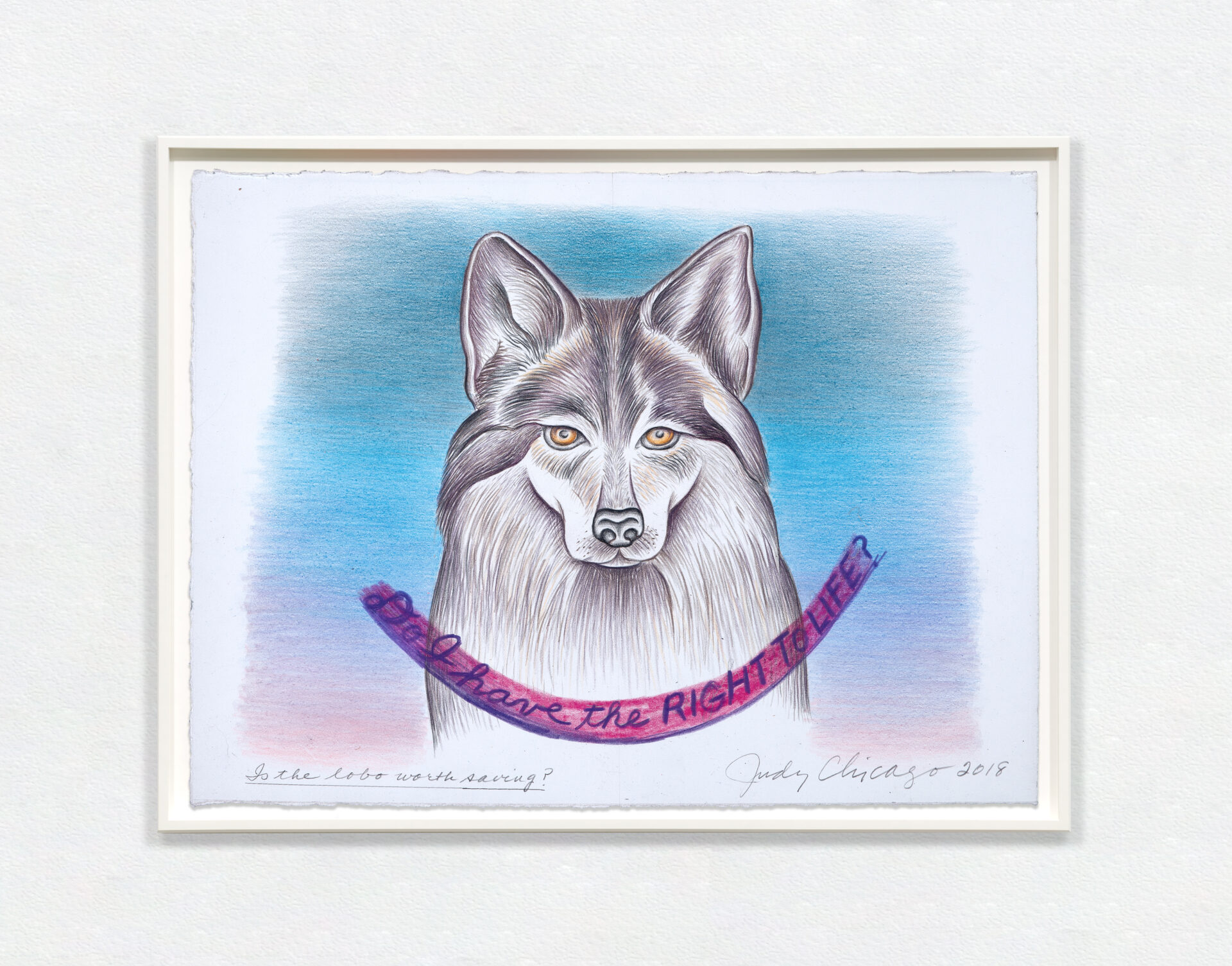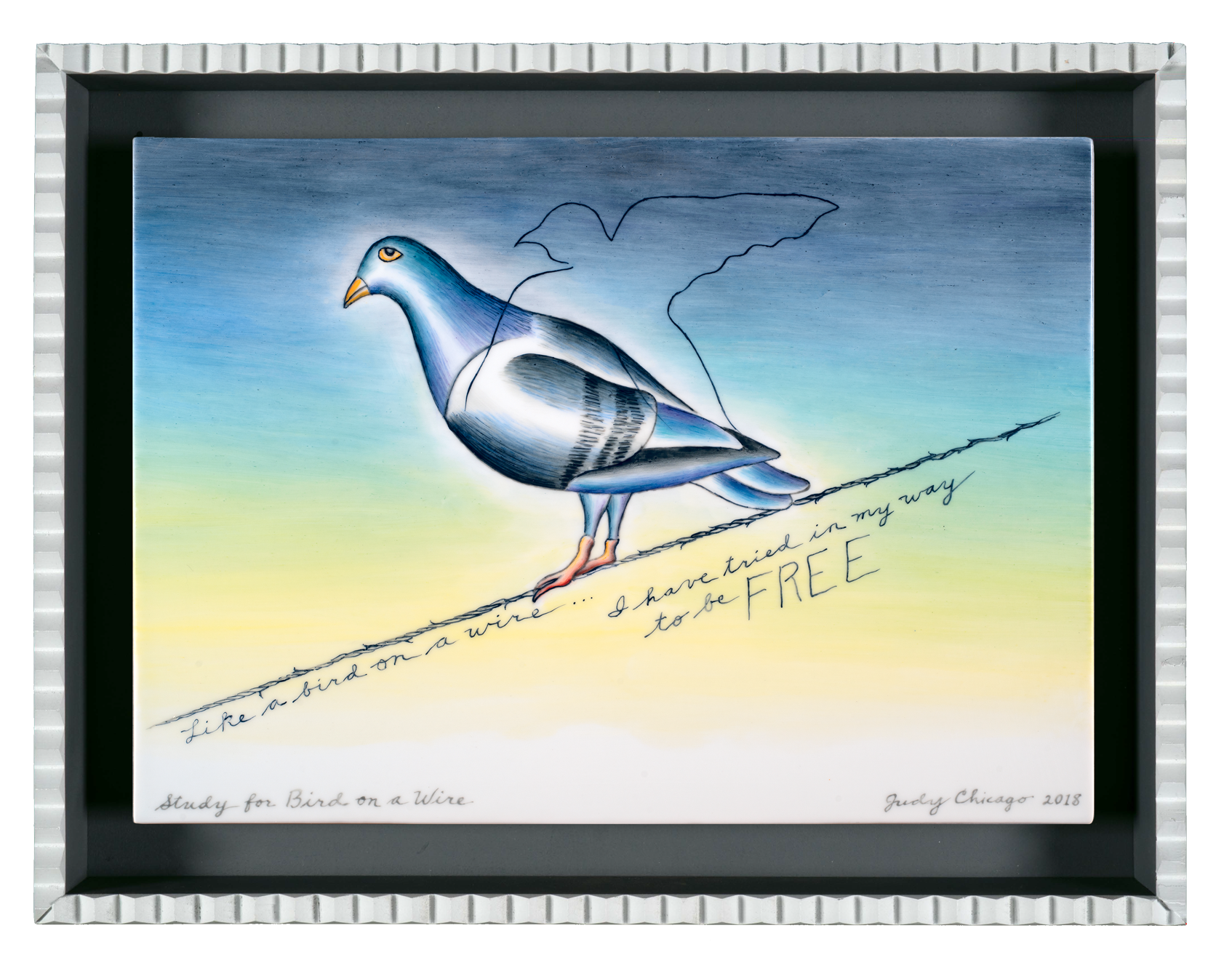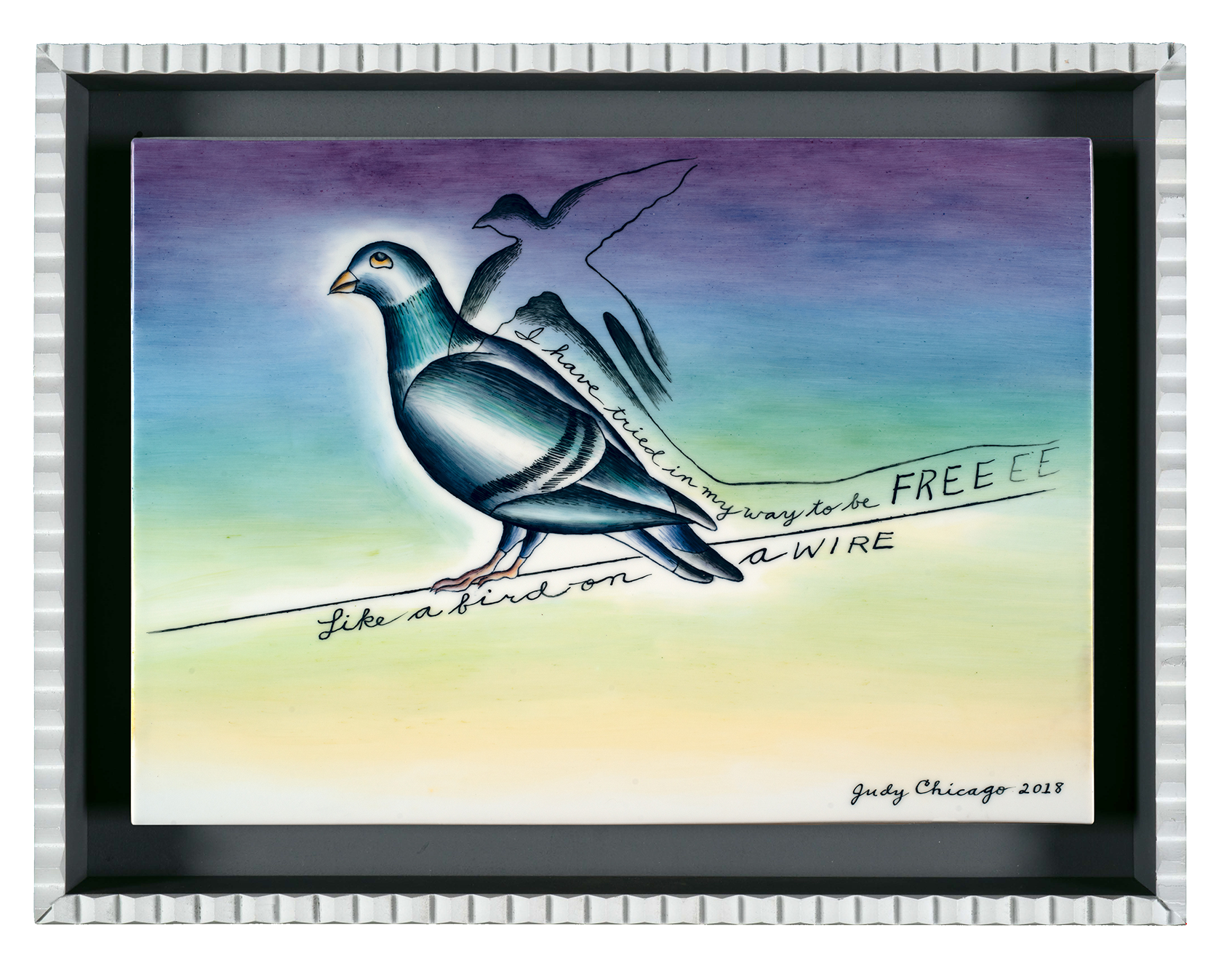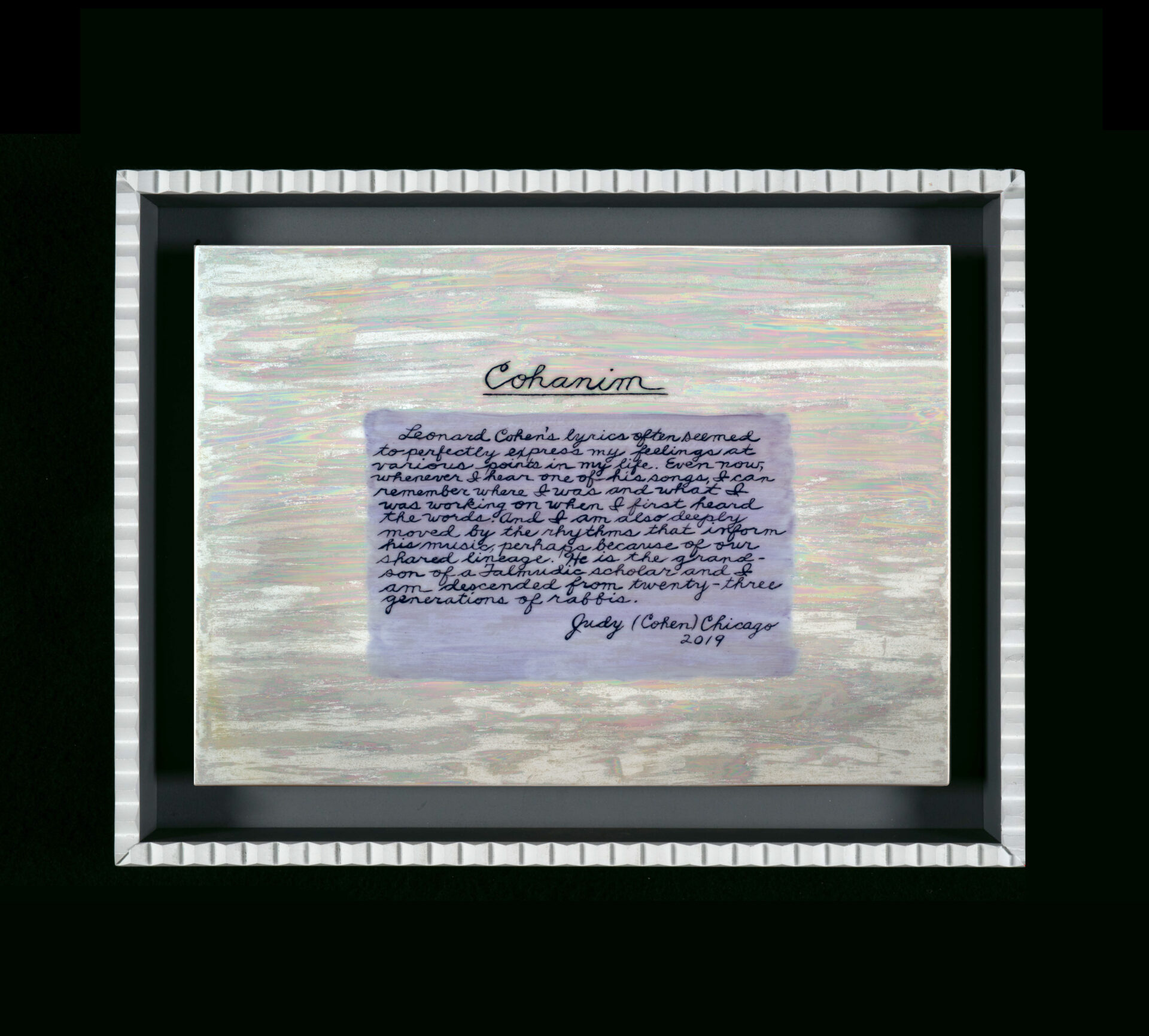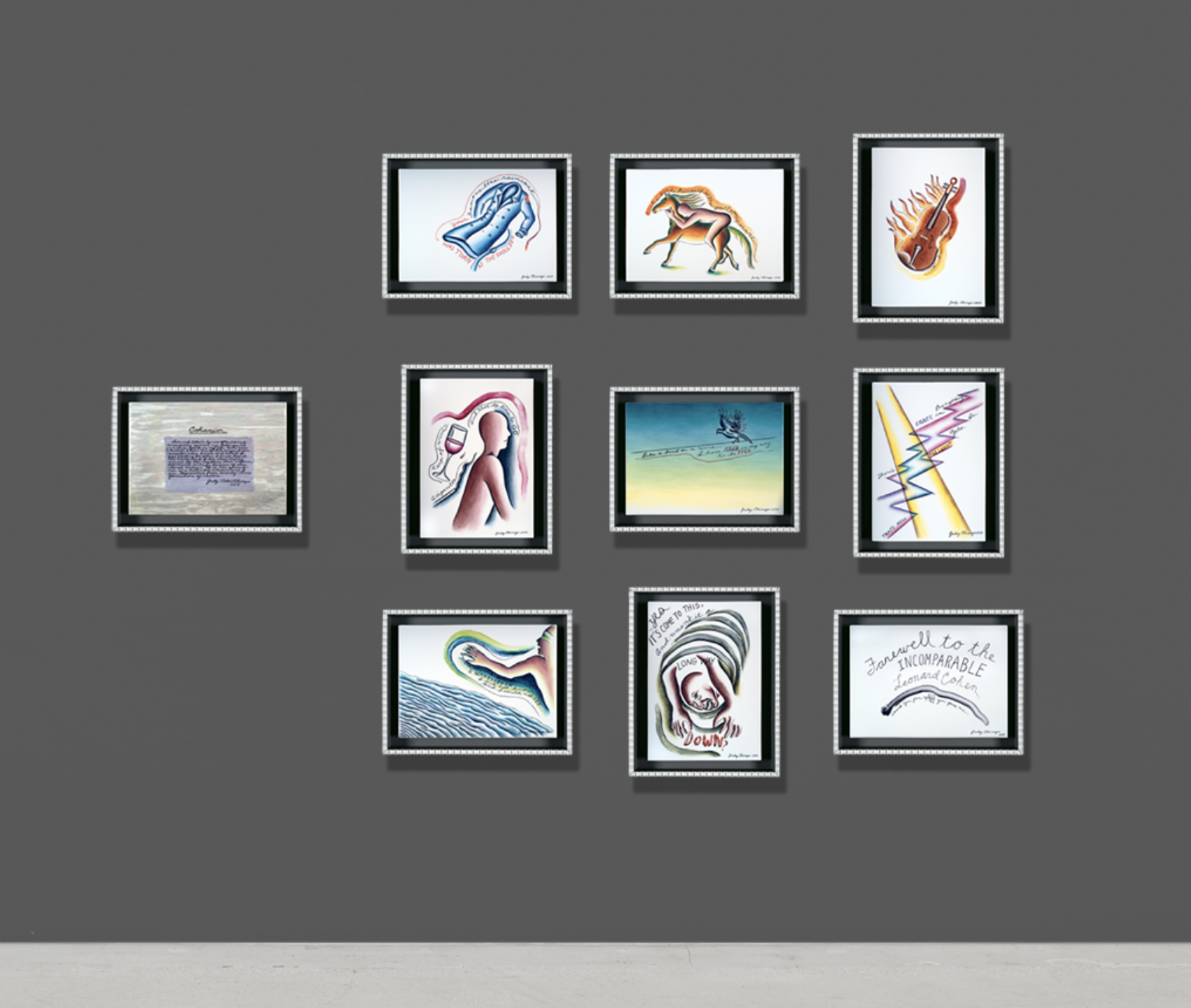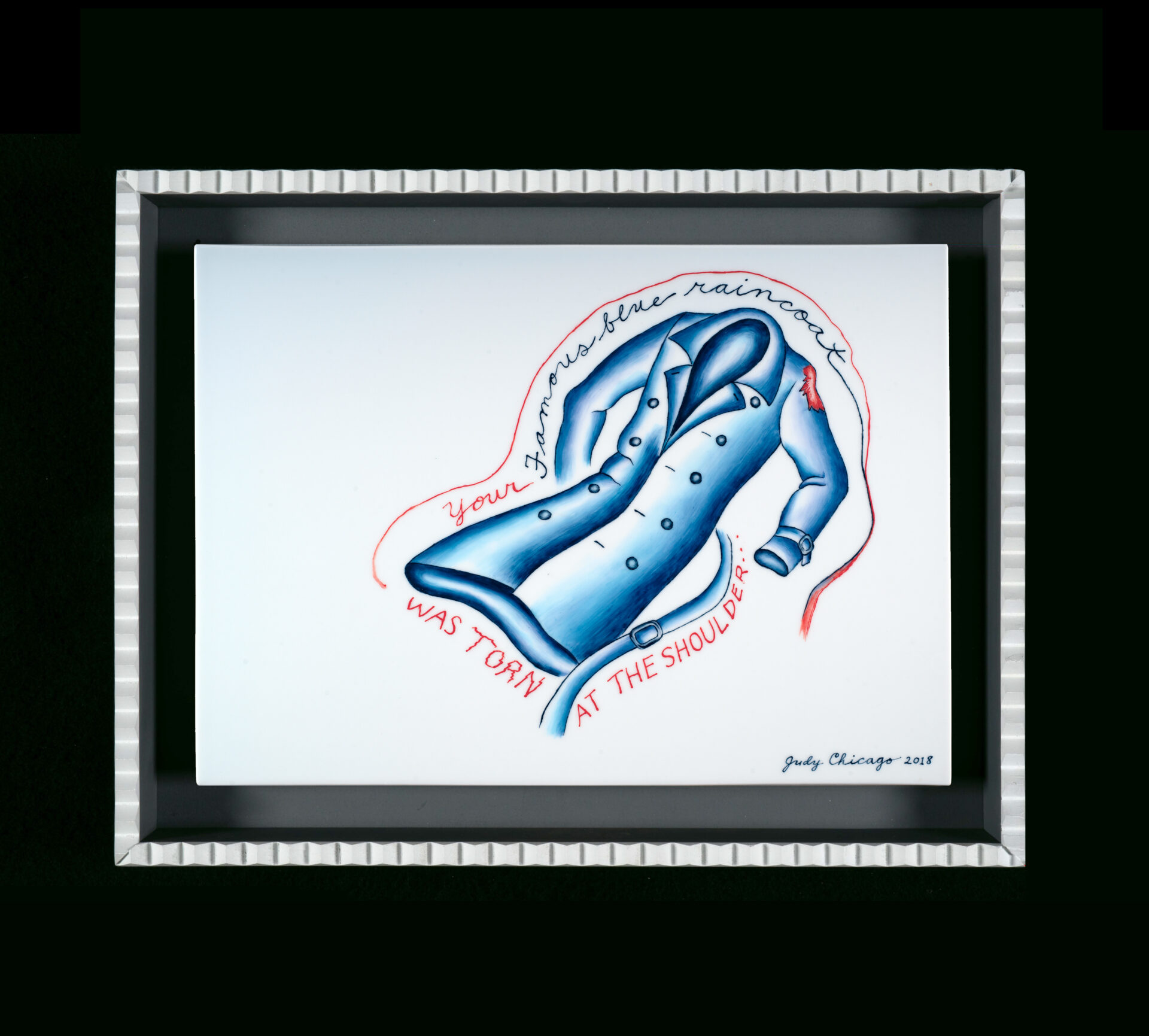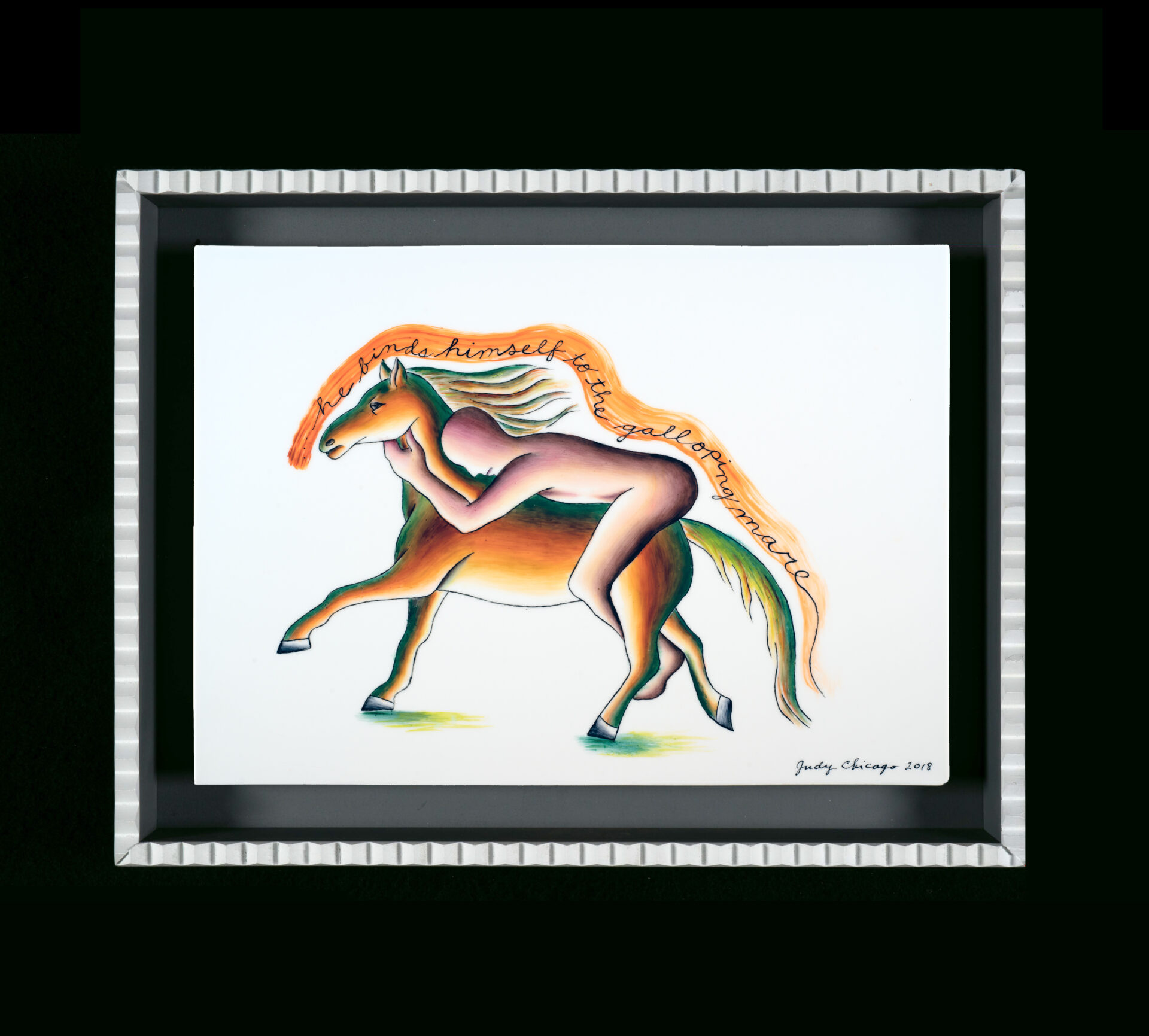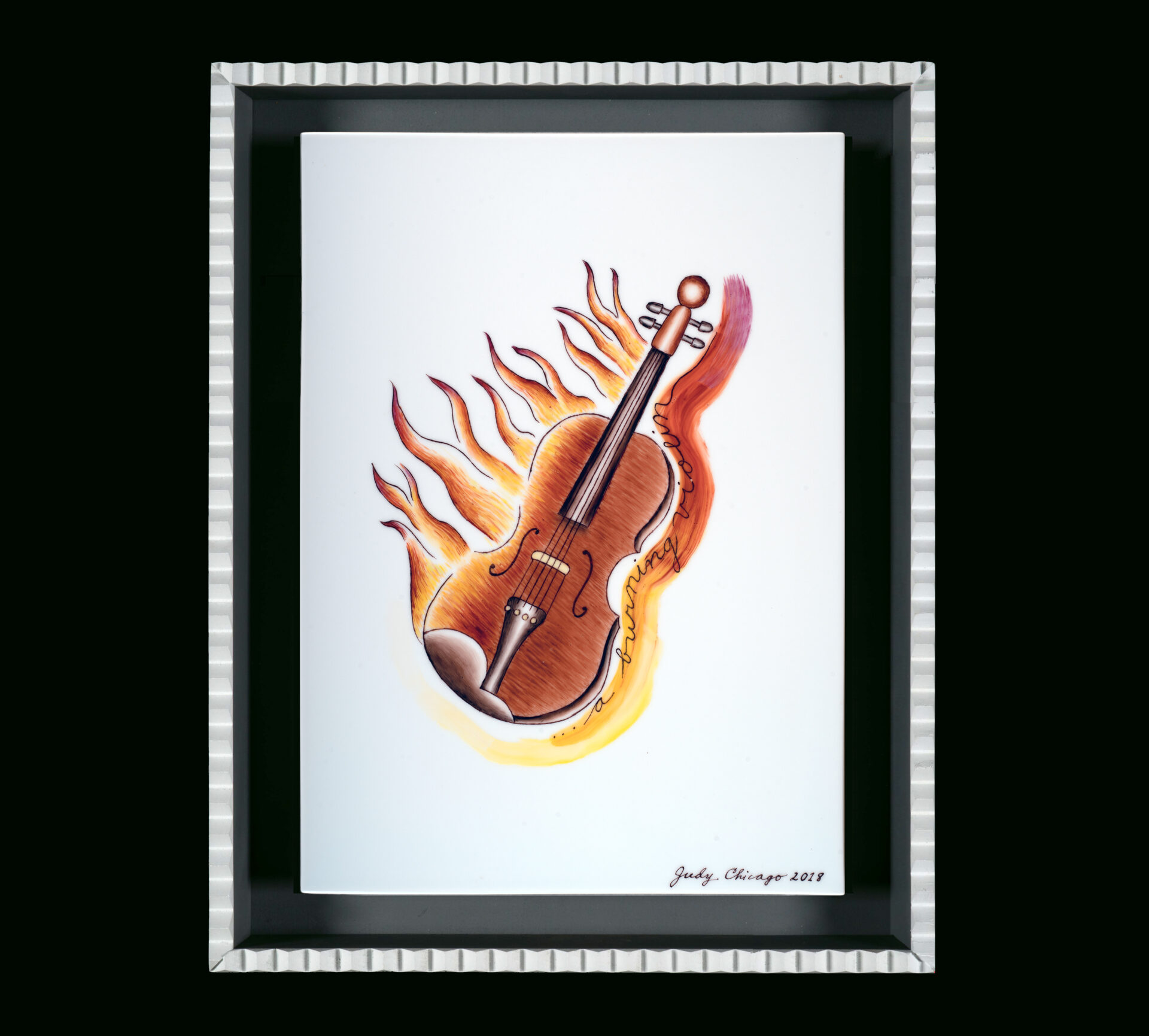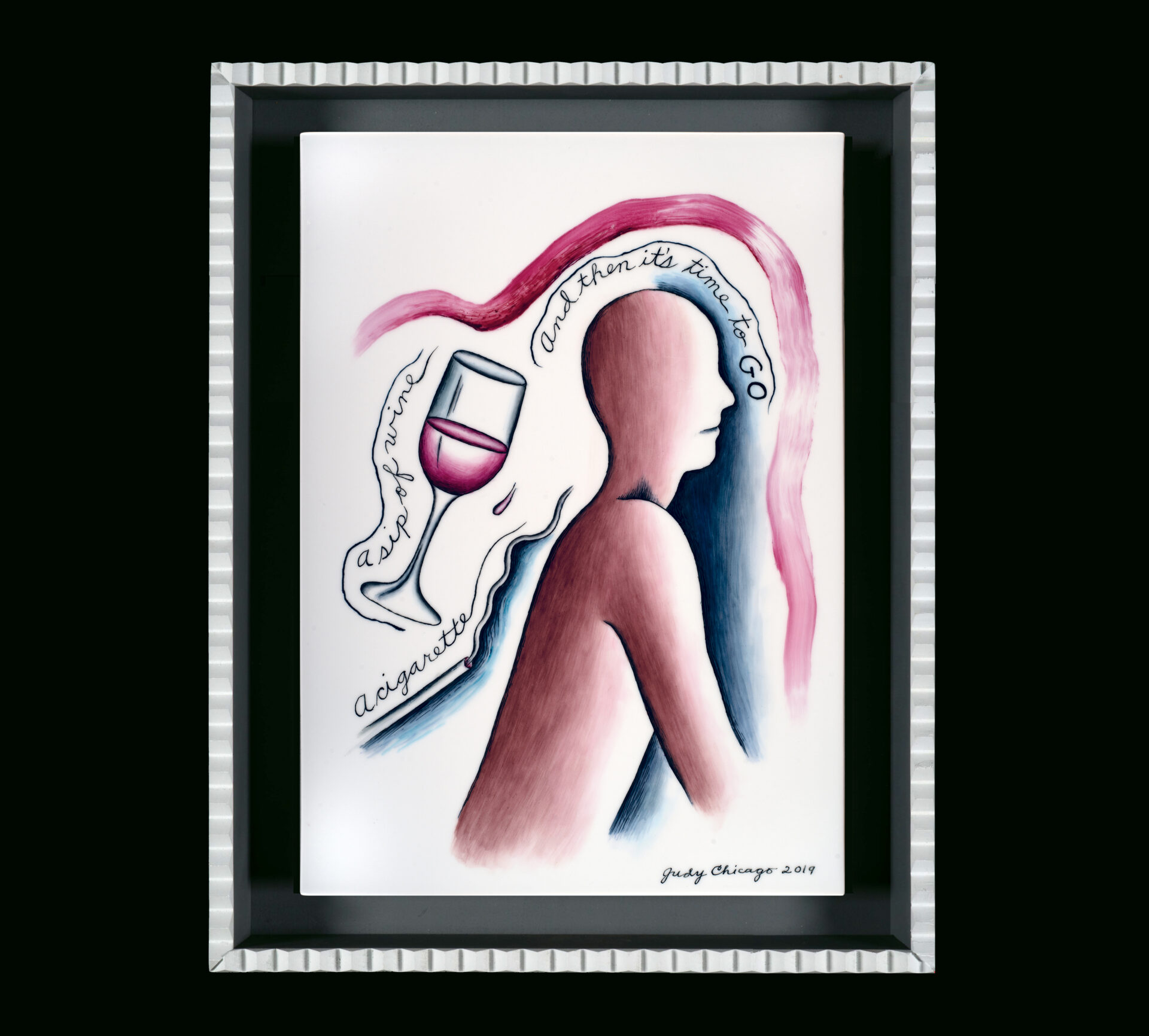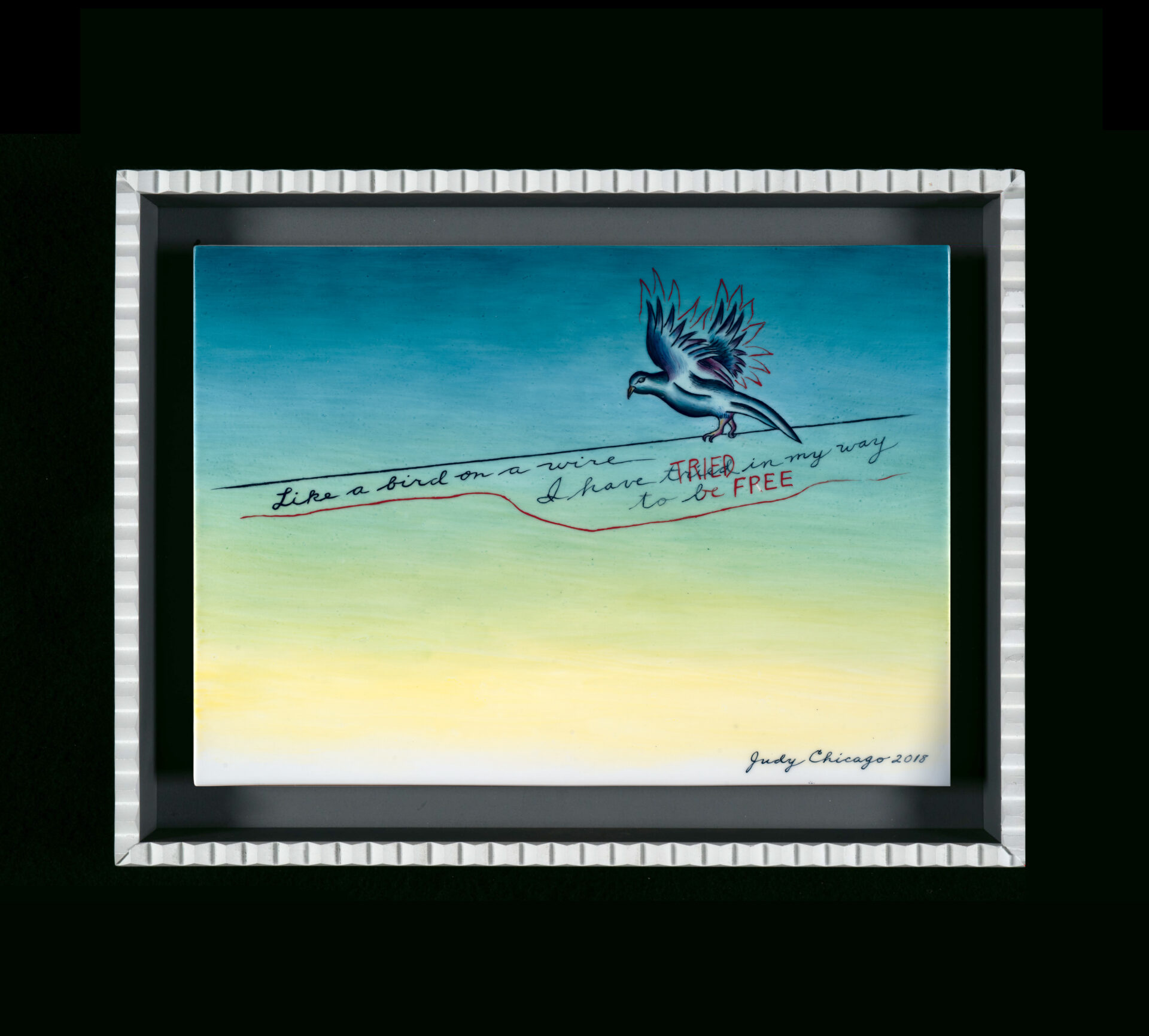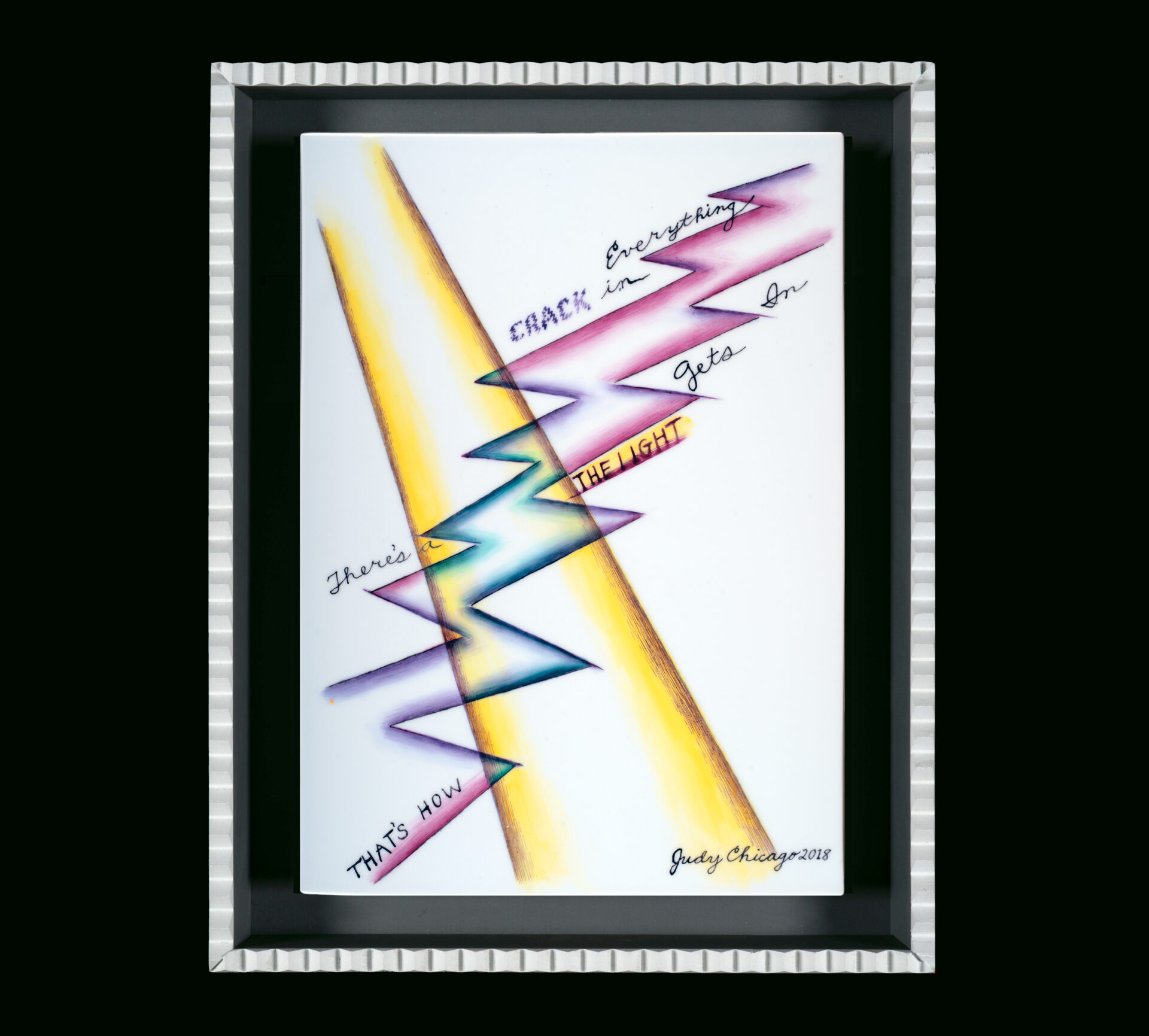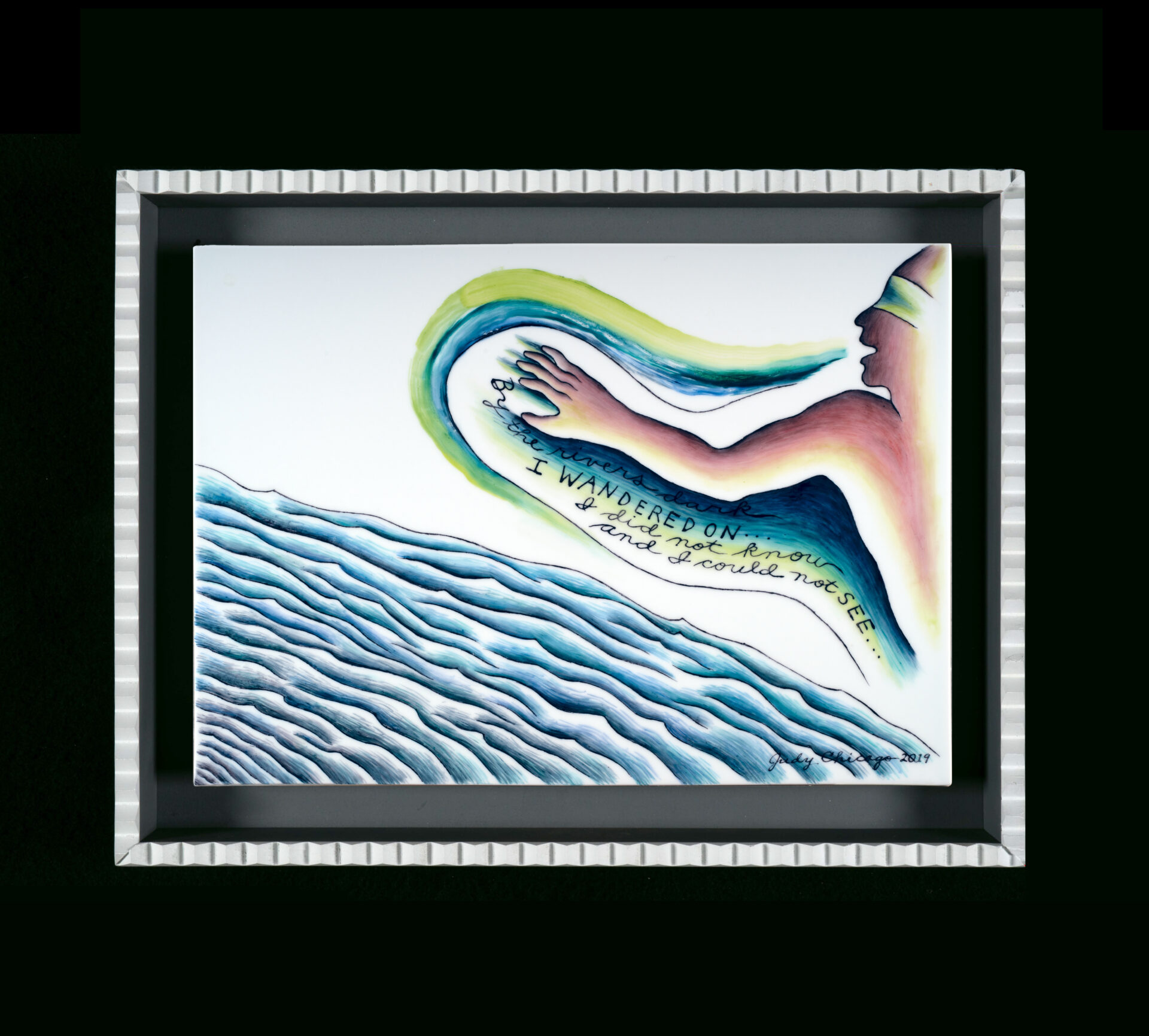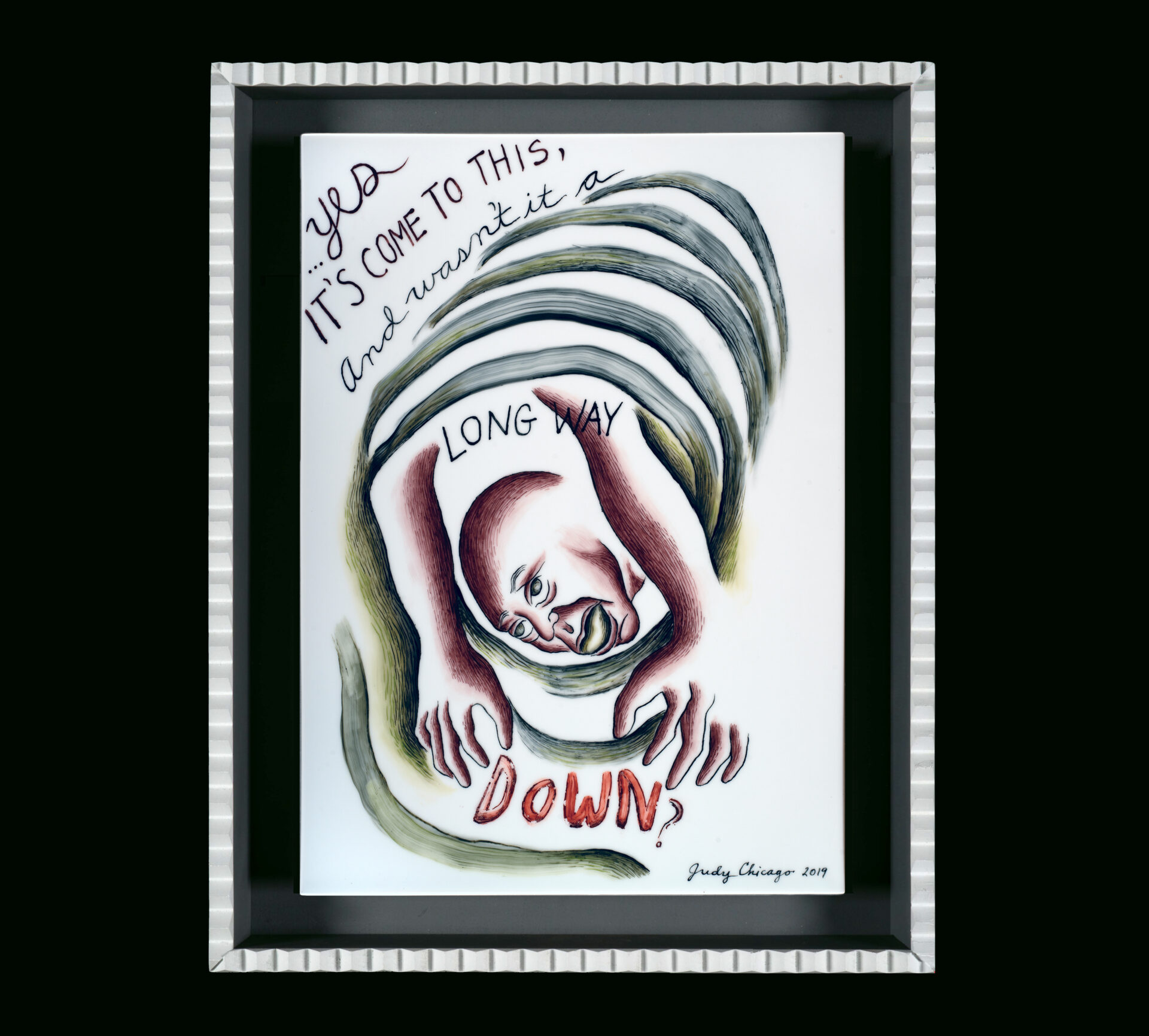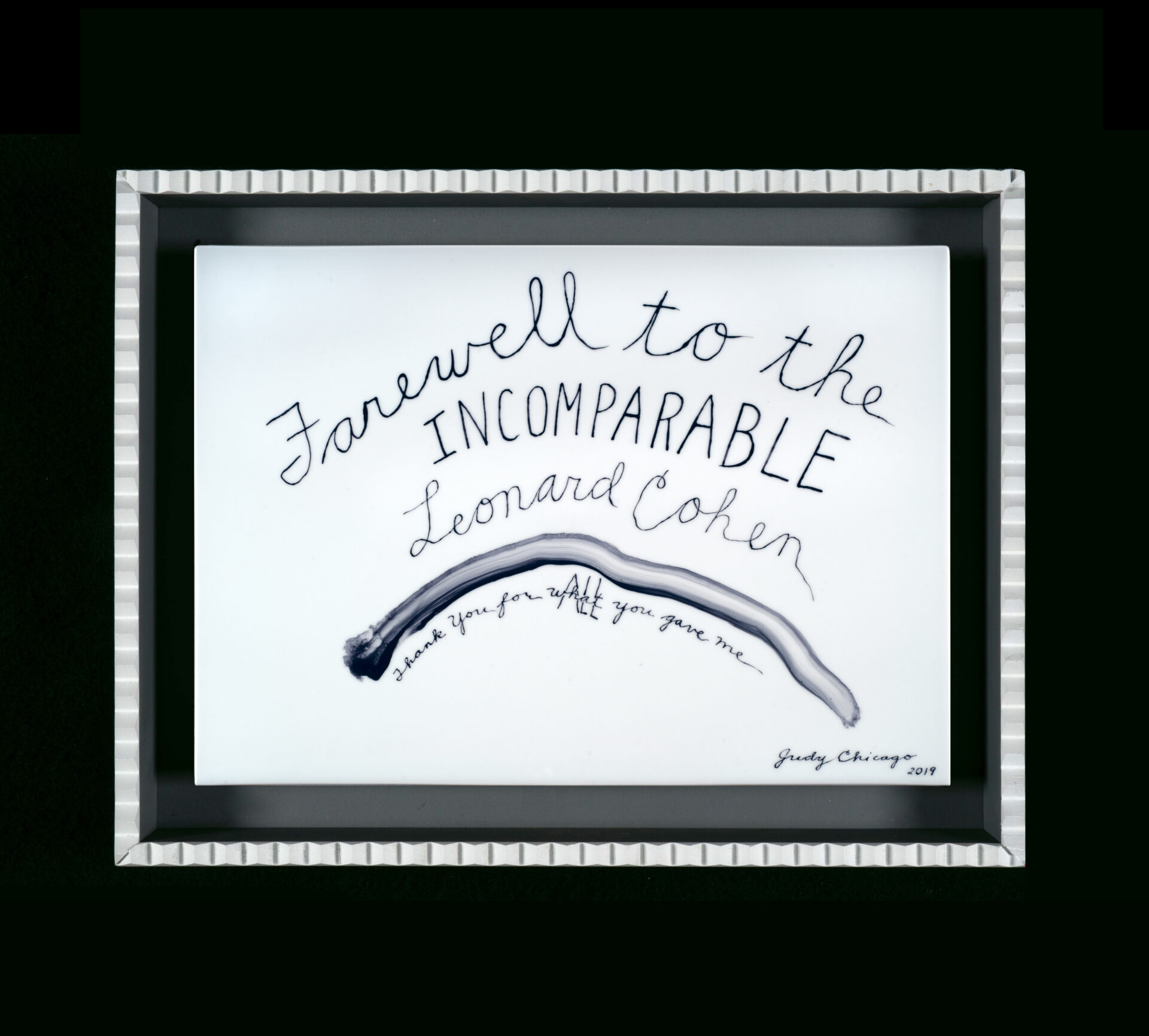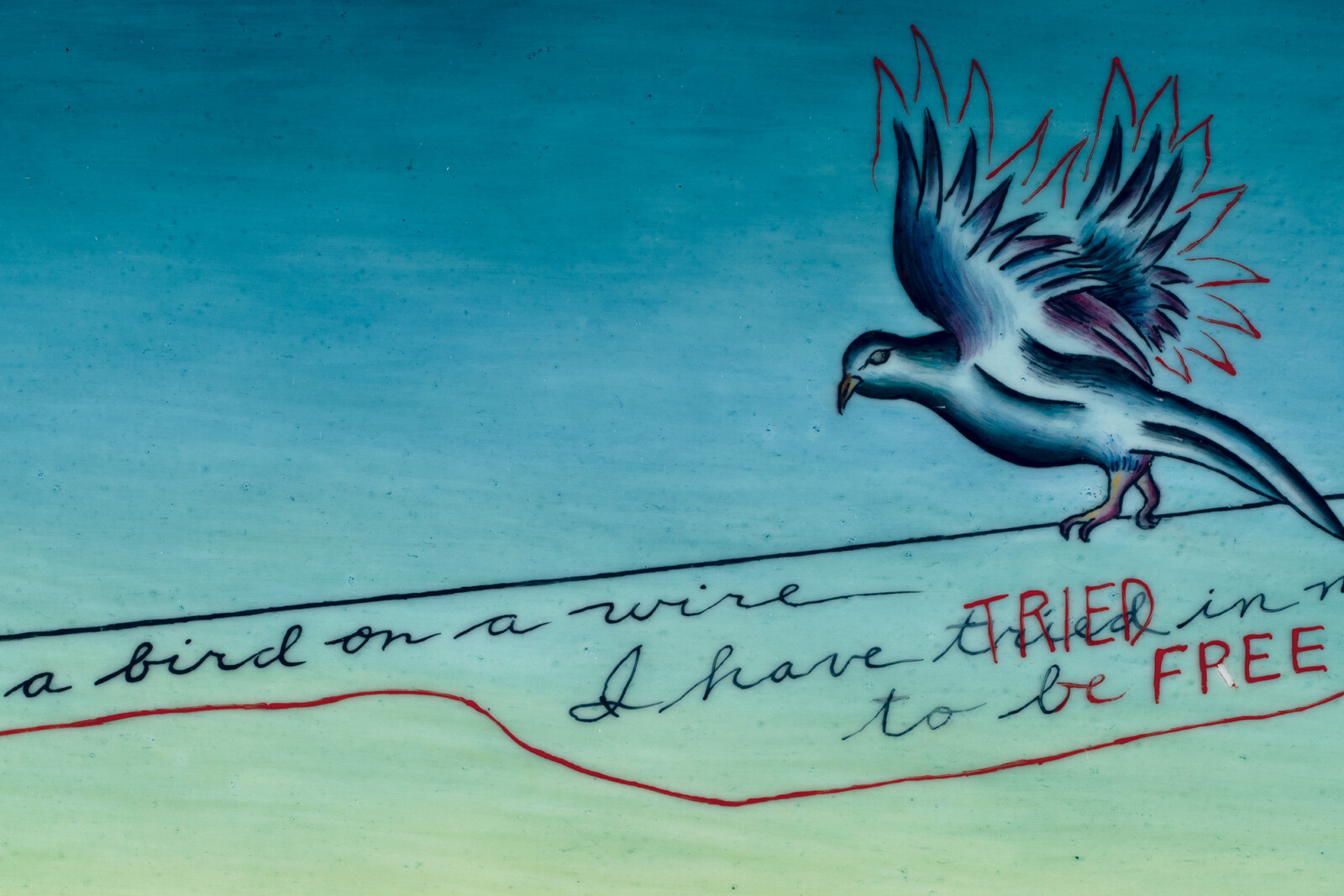Judy Chicago: Mother Earth + Cohanim
Jessica Silverman is pleased to present two shows by Judy Chicago: “Mother Earth,” an exhibition of new and historic works expressive of the artist’s longstanding concern for the environment and climate justice; and “Cohanim,” a series of porcelain paintings, commemorating Leonard Cohen and his lyrics. Chicago will enjoy a retrospective survey at the De Young Museum in San Francisco in November 2021.
Chicago was an eco-feminist before the term was coined. Her desire for both ecological harmony and egalitarian societies has fueled her art from her 1960s “Atmospheres” to her recent portraits of endangered species. In her cosmic 1980s “Shadow” drawings, Chicago creates ombre shaded maps, which explore the complexity of love, power and interdependence in intimate relationships.
In the “Birth Project,” primordial mothers merge with the landscape – their hair splayed like sunrays. While the Madonna and child are everywhere in art, images of the natural miracle of birth are rare. These works are Chicago’s attempt to displace the Book of Genesis with a feminist version of the Creation.
The butterfly is an ancient symbol of liberation and resurrection, which Chicago sees as a metaphor for emancipated womanhood. “Submerge/Emerge” (1976) is the last work available in this rare series of paintings on molded paper. Through the Flower is an iconic sun/womb image, based on a 1970s painting by the same name, which was used on the cover of Chicago’s 1975 autobiography.
While her male peers cut down giant redwoods and bulldozed earth into lakes to make their earthworks, Chicago created low-impact, sustainable, organic “Atmospheres.” Acclaimed as “gestures of liberation,” these smoke performances could be the enchanted clouds of a witches’ coven—colorful feminizations or wand-waving endorsements of the majesty of nature.
Well before the rainbow was adopted as a symbol of gay pride, the polychromatic spectrum was a vital ingredient in Chicago’s work. “Minimalism was supposed to be genderless, universal, and devoid of emotion, which is why color was so objectionable,” explains Chicago. Among other themes, the artist’s 1960s geometric abstractions represent repressed female sexual desire.
In the 1990s, Chicago’s concern for climate change was expressed in a series of color drawings, validating the dignity and lifeforce of trees in the face of drought. More recently, the artist created “Before It’s Too Late,” a series of portraits of animals endangered in the American South West. These tender drawings and paintings give recognition to creatures “who have a right to live and to be who they are,” as Chicago puts it.
“Leonard Cohen’s lyrics often seemed to perfectly express my feelings at various points in my life… I am so deeply moved by the rhythms that inform his music, perhaps because of our shared lineage. He is the grandson of a Talmudic scholar and I am descended from twenty-three generations of rabbis.”
—Judy (Cohen) Chicago
